Visit Paris: The Essential 5-Day Itinerary
Visiting Paris can seem overwhelming given the abundance of monuments and places to discover in the French capital. To ensure you don’t miss out on the must-see spots and to save time, we’ve prepared a comprehensive five-day itinerary. The best sites and unmissable highlights of the French capital are gathered in one clever guide so you won’t miss a thing.
Day 1: Discovering Paris
To begin your Parisian stay — especially if this is your first visit to the French capital — the ideal approach is to start with an overall view. This will also allow you to refine your choices of visits and activities if needed.
Morning: visiting the Eiffel Tower and the Trocadéro
For your first morning in Paris, there's nothing better than starting with the emblematic symbol of Paris: the Eiffel Tower.
Visiting the Eiffel Tower gives you a panoramic and comprehensive view of Paris, allowing you to better grasp your future visits. From its 324 meters, you’ll have the opportunity to observe the main monuments and landmarks of Paris, such as the Arc de Triomphe, the Sacré-Cœur Basilica, the Montparnasse Tower, or even Notre-Dame Cathedral.
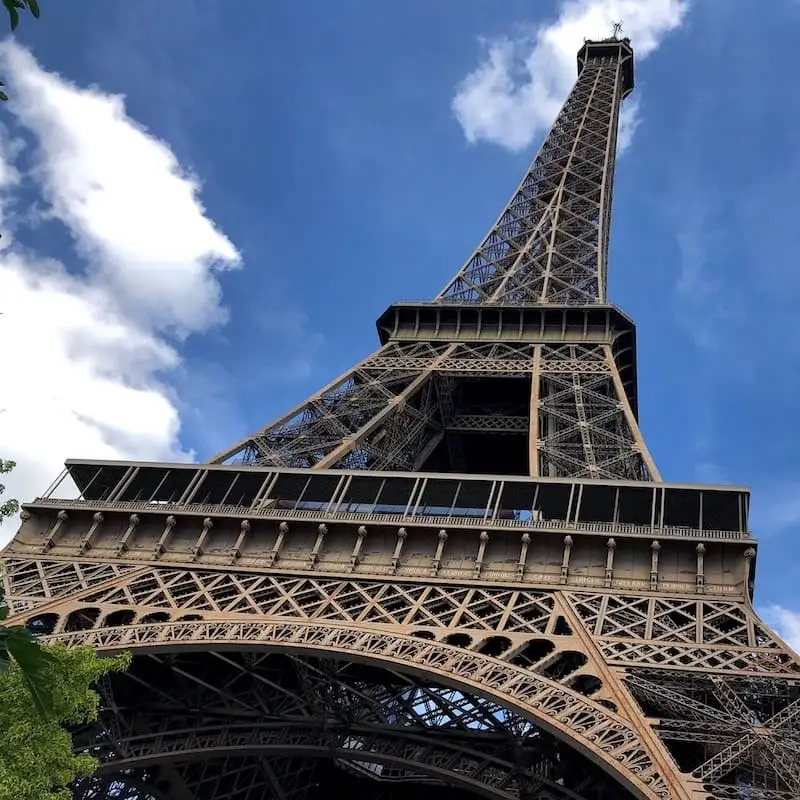
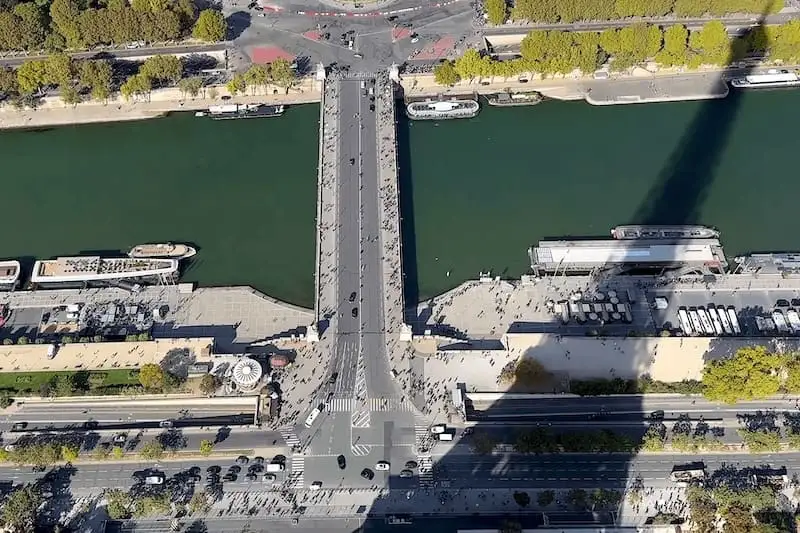
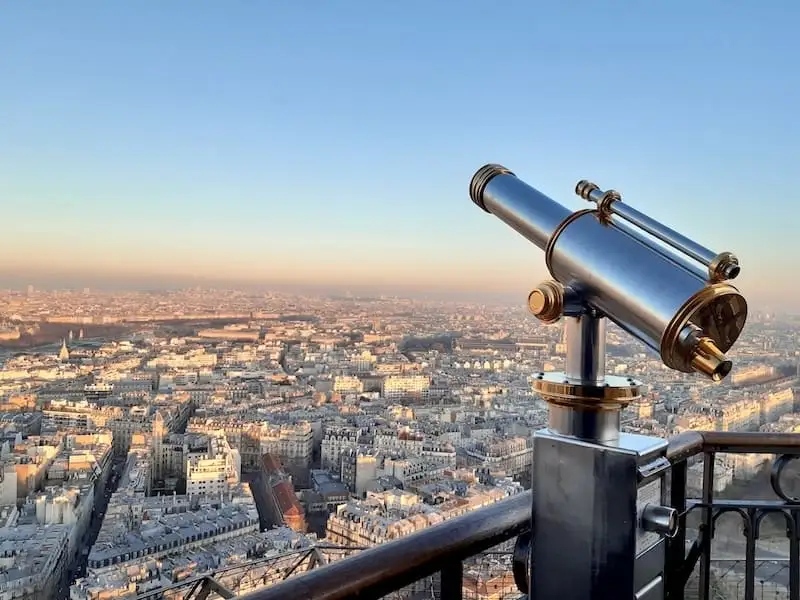
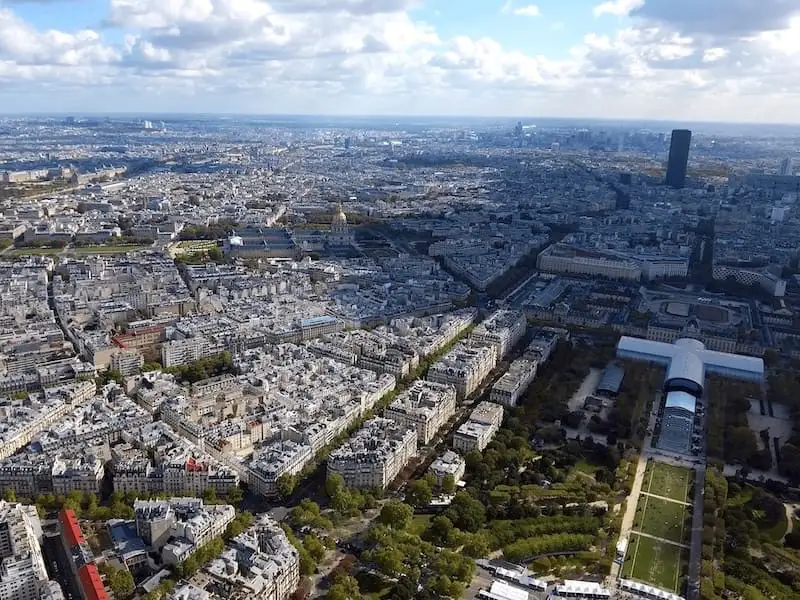
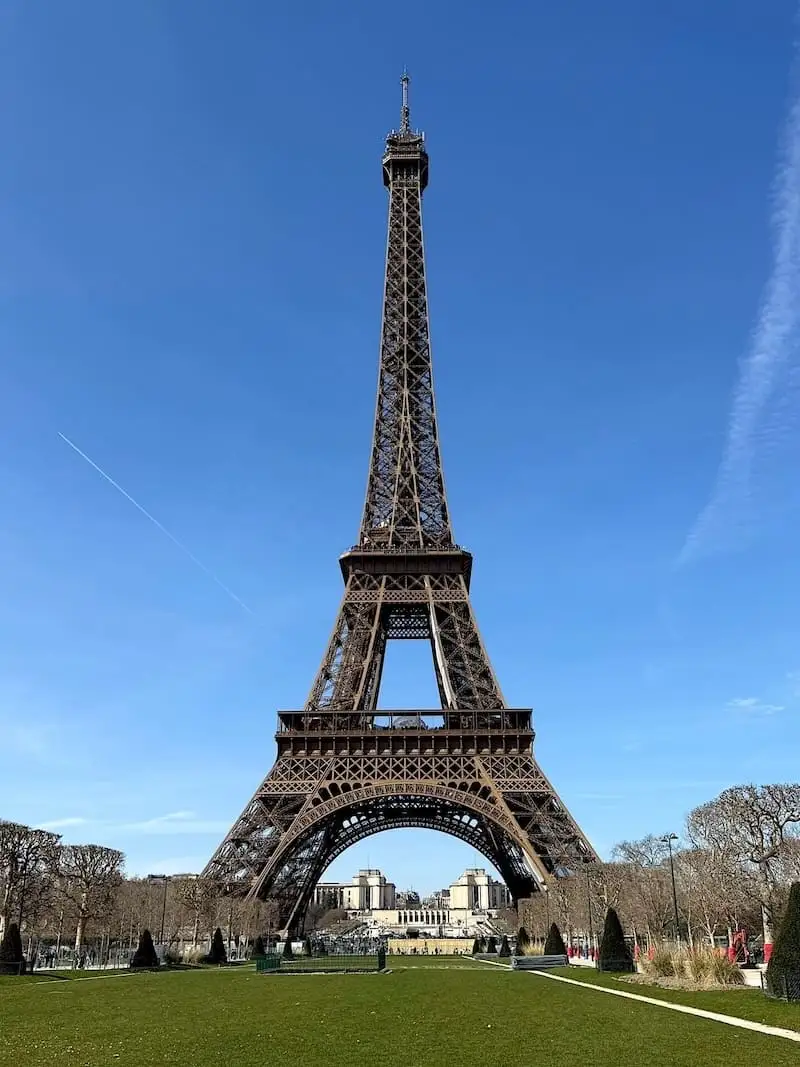
It is highly recommended to purchase your ticket for the Eiffel Tower before your visit, as the number of visitors is limited, especially for the top floor. You should also be aware that the price of the Eiffel Tower ticket varies depending on the final destination (2nd floor or summit) as well as the mode of ascent (elevator or stairs).
Note: tickets purchased are neither exchangeable nor modifiable. It is also not possible to buy an “add-on” for the summit on-site if you only purchased a ticket for the second floor.
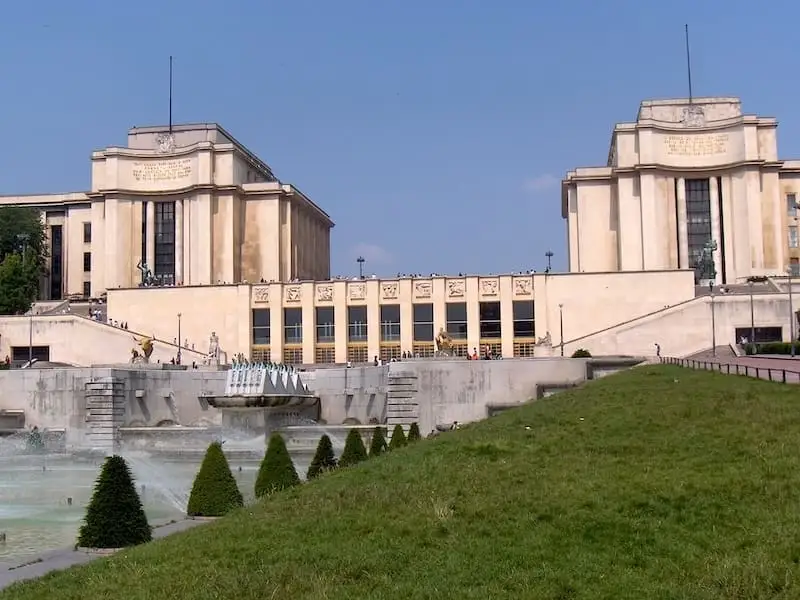
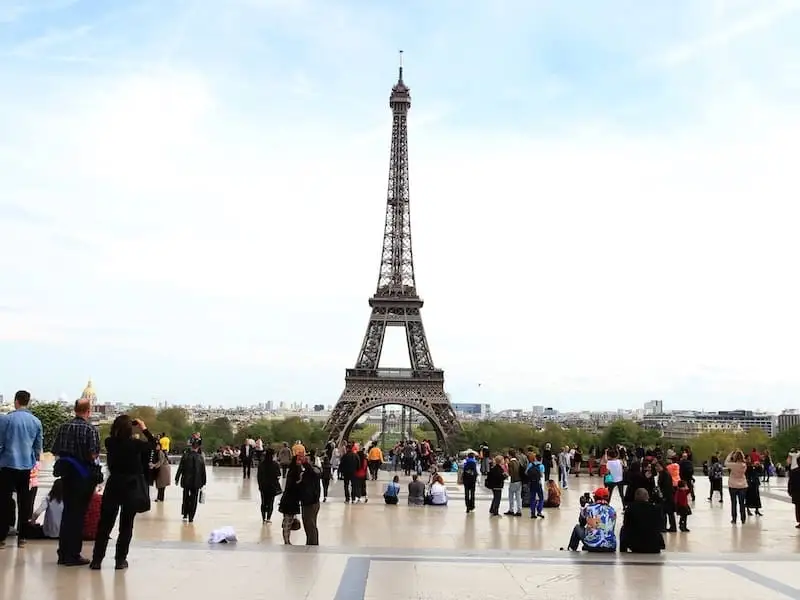
Once your visit to the Iron Lady is over, head towards the Pont d'Iéna to reach the Trocadéro esplanade and its famous fountains. After climbing the stairs, you’ll arrive at the Place du Trocadéro, the perfect spot to capture your best photos with the Eiffel Tower in the background.
Lunch: Gourmet suggestions in the 7th arrondissement
After your visit to the Eiffel Tower and the Trocadéro, the ideal plan is to grab a quick bite in the 7th arrondissement, around the Champ de Mars. If you’d like to enjoy a quality French-style lunch in a warm atmosphere, here are three typically Parisian addresses that will delight your taste buds:
- Aux Cerises (47 avenue de Suffren, 75007 Paris): A cozy café-restaurant, perfect for tasting homemade dishes made with fresh ingredients. Ideal for a light and delicious lunch.
- Au Petit Tonneau (20 rue Surcouf, 75007 Paris): A traditional bistro serving generous and authentic dishes. The perfect place to discover classic French cuisine in a friendly atmosphere.
- Restaurant Chiquette (3 rue de Bourgogne, 75007 Paris): An ideal setting for a chic and pleasant experience, featuring refined French cuisine.
Afternoon: Exploring Paris
To continue this first day of discovery, the ideal plan is to join a broad guided tour of Paris. The French capital isn’t very large (only 13 km long), but it’s packed with monuments, museums, and exceptional places.
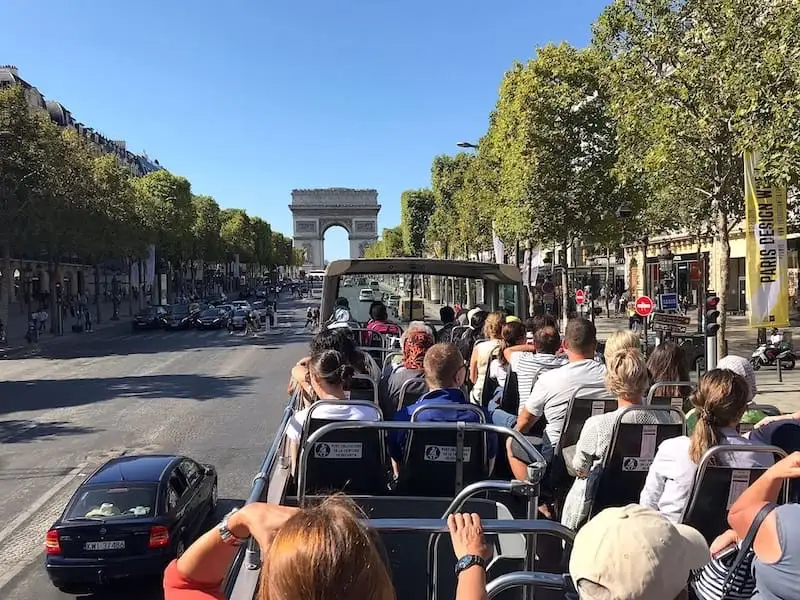
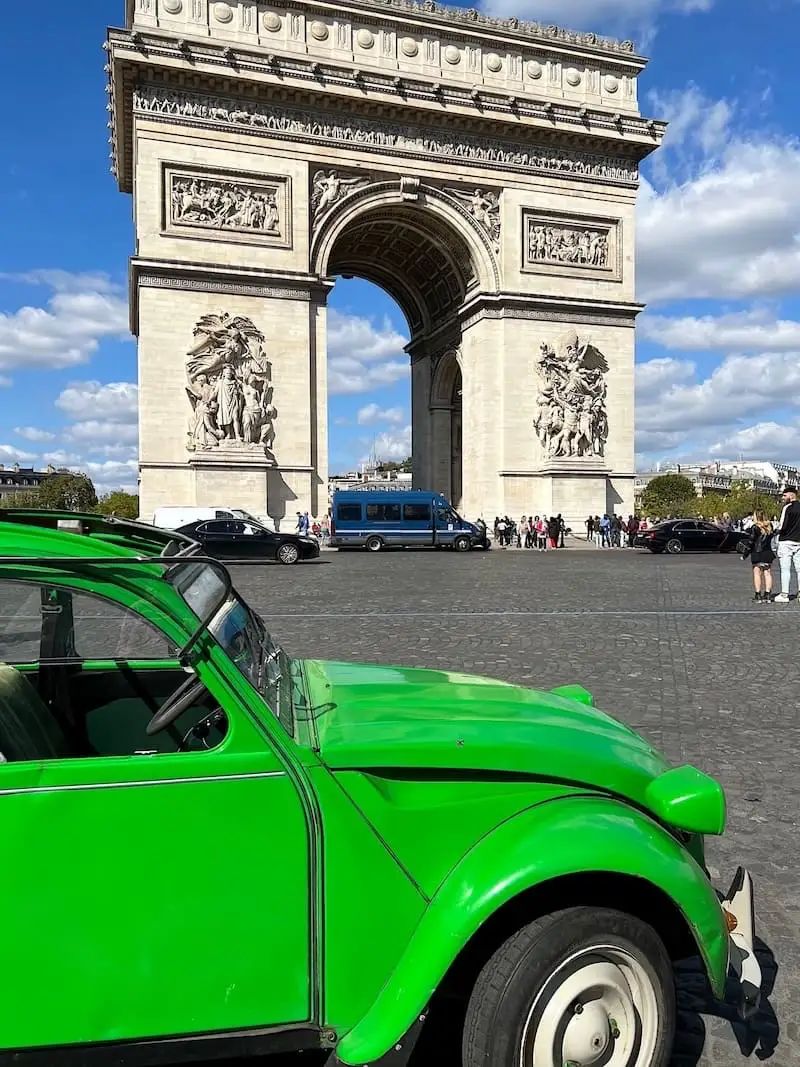
Two options are available for exploring Paris:
"Hop-On Hop-Off" Tourist Bus
Tourist buses may be a classic way to discover Paris, but they’re undeniably practical. They cover the main attractions of the city while making multiple stops, about twenty in total. The multilingual audio guide is also very useful for learning more about the must-see places.
A simple and efficient way to visit Paris. If you’re looking for a tourist bus, we recommend getting your ticket with Big Bus.
Tour with a Private Guide
For a more immersive and personalized experience, opt for a private driver-guide: treat yourself to the services of a true Parisian to show you around the city.
Among the various options available, we highly recommend the Paris tour in a 2CV, the iconic French car from the 1950s.
It's a vintage and original experience, perfect for discovering unusual anecdotes and stories while admiring the most beautiful monuments and picturesque neighborhoods of Paris. The tour usually lasts 2 to 3 hours, and the driver will pick you up and drop you off directly at your hotel. If you’re an adventure seeker, you could also try exploring Paris by Side-Car, a vintage and thrilling discovery activity.
If you’d like to see Paris lit up at night, opt instead for the nighttime tour. Driving through Paris at night, along the banks of the Seine, down the Champs-Élysées, and past its main monuments, is a unique and magical experience.
Day 2: Île de la Cité, Île Saint-Louis and the Louvre Museum
For your second day in Paris, there’s nothing better than discovering the heart of the capital, with its two islands—both the historic center and the quintessential postcard image of Paris—before continuing your visit to one of the most prestigious museums in the world, if not the most: the Louvre.
Morning: Notre-Dame de Paris, the Sainte-Chapelle and the Conciergerie
Île de la Cité is home to three exceptional monuments, both aesthetically and historically: the Notre-Dame de Paris Cathedral, the Sainte-Chapelle, and the Conciergerie.
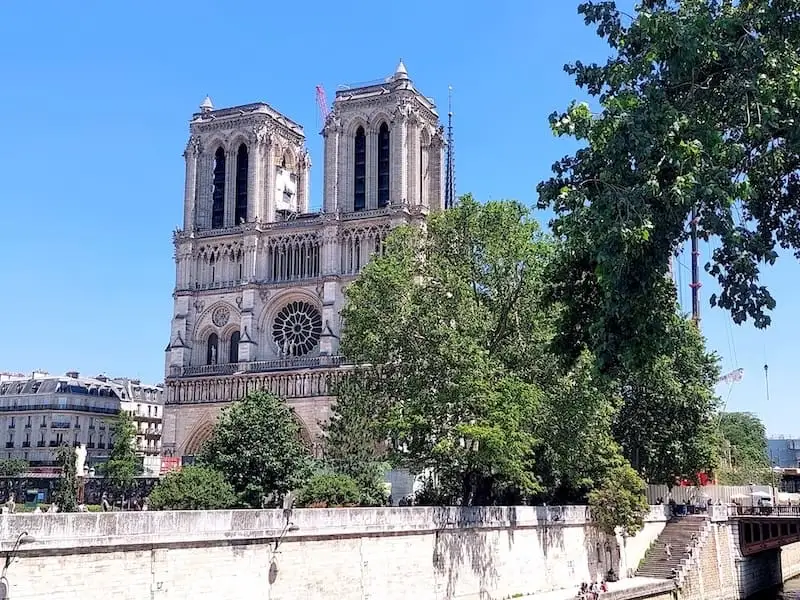
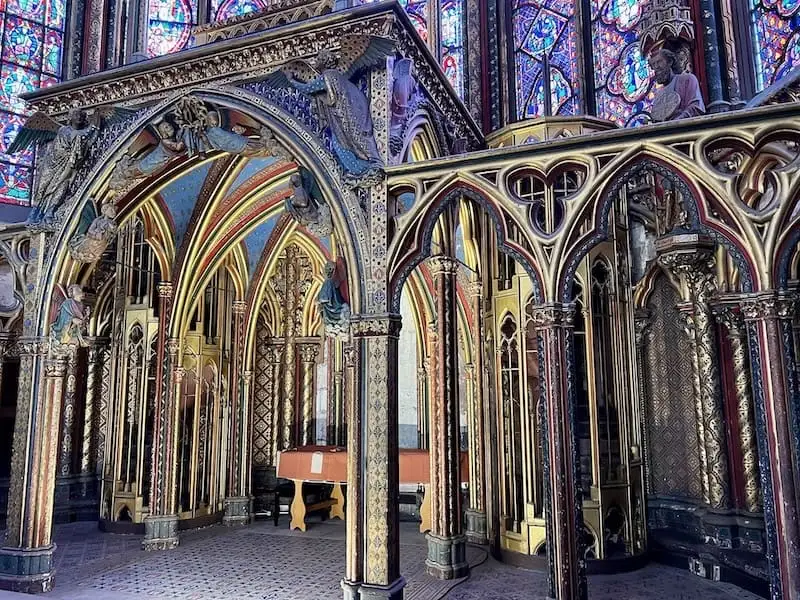
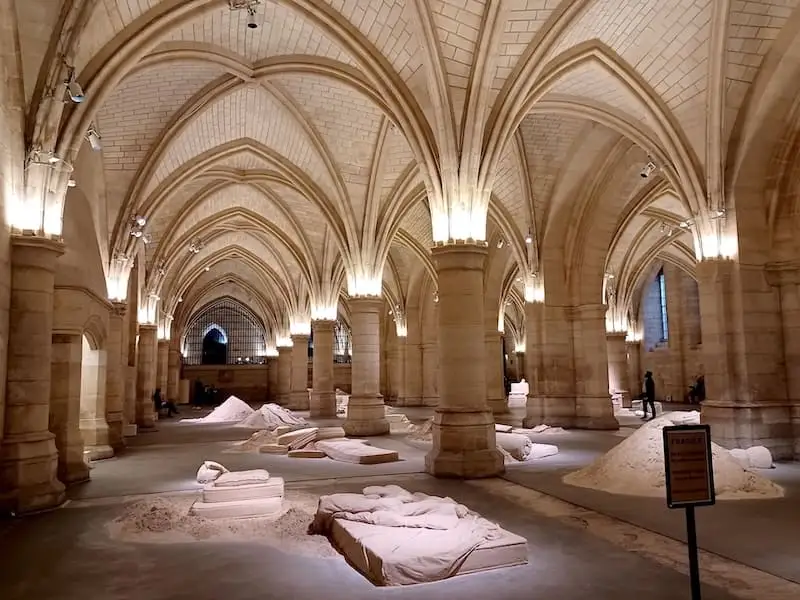
The Notre-Dame de Paris Cathedral is now reopened, after suffering the terrible devastation of a fire in 2019. This world-renowned cathedral is more resplendent and luminous than ever. It is an architectural feat, both past and modern; it is also one of France’s main monuments due to its historical significance. Notably, its walls have witnessed the coronation of Napoleon I and the funerals of several French presidents who left a profound mark on the nation (General Charles de Gaulle, Georges Pompidou, François Mitterrand).
The visit to Notre-Dame de Paris is completely free of charge, so it would be a shame to miss it. You can book a visit slot on the Notre-Dame de Paris Cathedral website. Booking is not mandatory, but it is strongly recommended to avoid long waiting lines on busy days.
Once your visit to the cathedral is finished, head toward the Sainte-Chapelle, located less than 400 meters away. On the way, make a quick detour to the now renowned Marché aux fleurs Reine-Elizabeth-II (formerly Marché aux Fleurs de l’Île de la Cité). This small horticultural market, with its metal pavilions, is full of charm.
Next, go to the Sainte-Chapelle, a Gothic architectural masterpiece famous for its magnificent 13th-century stained glass windows: an absolute must-see. Right next to the Sainte-Chapelle is the Conciergerie. Formerly a royal palace, the building is now a museum dedicated to the Revolutionary period. As a historical note, it was within the walls of the Conciergerie that Queen Marie-Antoinette was held before her execution. If you’re interested in the Revolutionary era, the Conciergerie is a must-see; otherwise, prioritize visiting the Sainte-Chapelle for the beauty of its stained glass windows.
You must book your tickets for the Sainte-Chapelle in advance, as it is a very popular attraction. Tickets are free for minors and young European citizens under 26. For adults, tickets cost €13 (€20 if you choose to visit the Conciergerie at the same time).
Lunch: Île Saint-Louis
For lunch, head to the Île Saint-Louis, a symbol of Parisian romance and charm. If you want a quick bite, you can enjoy a picnic facing the Seine, either from the island’s quays or at Square Barye. If you prefer a more sensational culinary experience, in that case, cross the Seine to go to the A. Lacroix tea room and pastry shop, one of the best patisseries in Paris.
You can have lunch there and, most importantly, taste exceptional pastries. So, treat yourself to a macaron! During the meal, take the opportunity to plan your route for the largest visit of your Parisian stay: The Louvre.
Afternoon: The Louvre
After regaining your strength, head to the Louvre Museum and its iconic glass pyramid. The Louvre is the cultural visit not to be missed in Paris; missing out would be truly regrettable. It is one of the most famous museums in the world, and above all the largest in terms of exhibition space, with its 73,000 m² and hundreds of thousands of artworks.
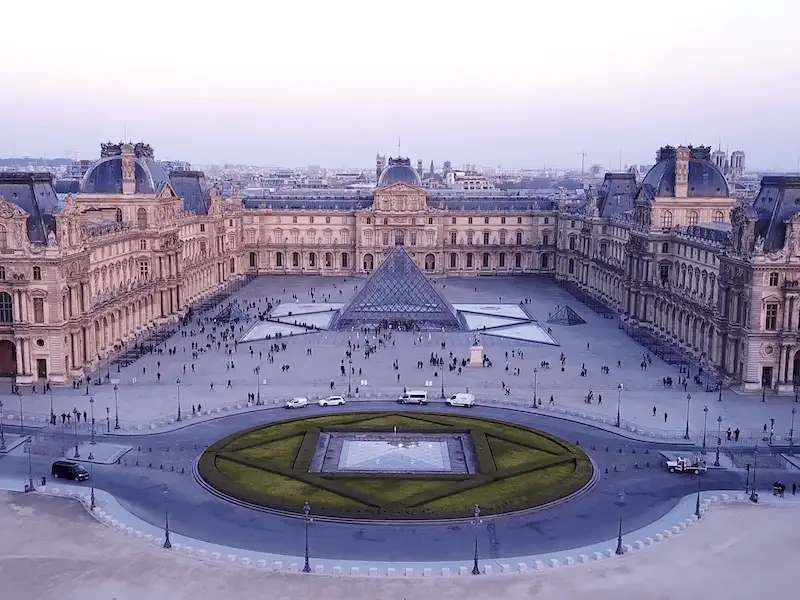
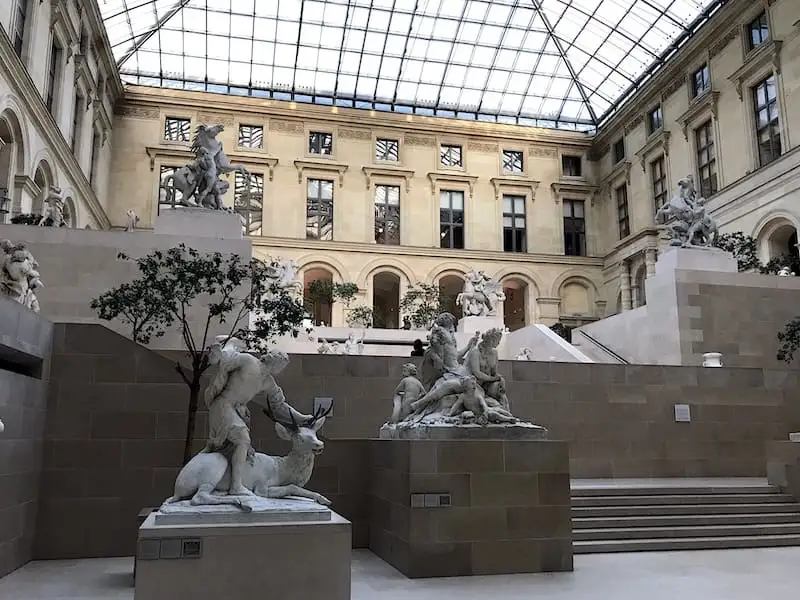
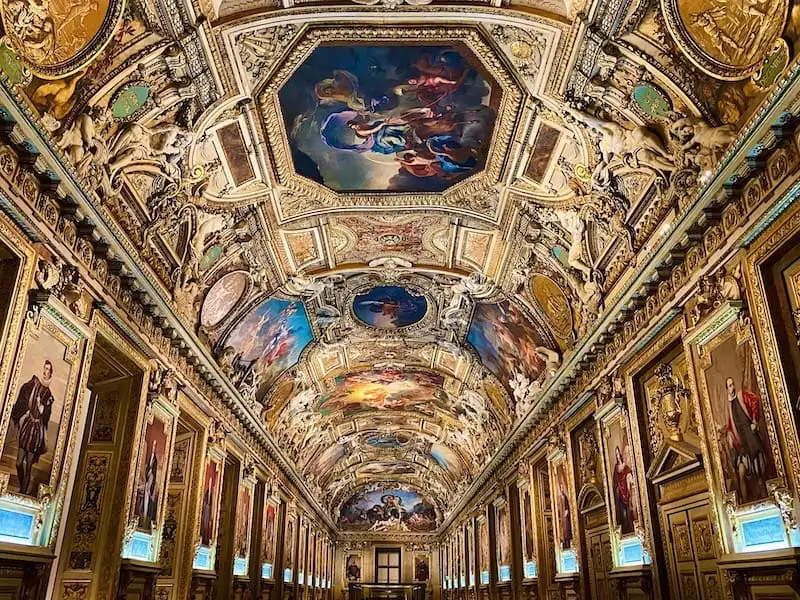
A visit to the Louvre needs to be anticipated and prepared in advance. You won’t be able to see everything in half a day, or even in several days, to be honest. Therefore, you’ll need to plan which artworks you want to prioritize.
The museum is divided into 9 thematic departments to help you structure your route, and it houses numerous internationally renowned pieces such as Leonardo da Vinci’s Mona Lisa, The Raft of the Medusa by Théodore Géricault, and Liberty Leading the People by Eugène Delacroix.
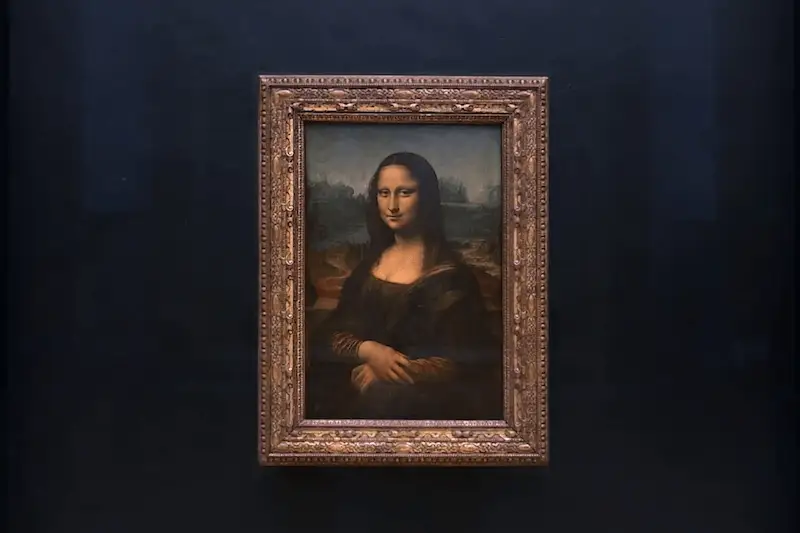


To help you plan your visit, the museum offers thematic tours with signposted routes lasting from 1 hour to 1 hour 30 minutes. Among these tours, you’ll find one dedicated to the masterpieces, one on Ancient Egypt, and another focusing on the Richelieu Wing, where you can see, among others, ancient sculptures. Depending on your interests, plan on 2 to 3 of these thematic tours, or 2 to 3 departments, so that you can really take the time to appreciate the displayed works.
Admission to the Louvre costs €22 per person (adult rate). However, it is free for those under 26 who reside in a European Economic Area country, with a valid ID. You must reserve your tickets for the Louvre in advance; otherwise, you may not be able to enter the museum.
For a more personalized museum experience and to better understand the history and technique behind the major masterpieces, feel free to opt for an entry with a guided Louvre tour. This approach provides a better grasp of the masterpieces, and moreover, guides have priority access.
Day 3: Palais Garnier and Montmartre
For this third day in Paris, dedicate yourself to discovering the exceptional sites located in the 9th and 18th arrondissements, two neighboring districts.
Morning: Visiting the Palais Garnier
The ideal way to begin your third day in Paris is by visiting the Palais Garnier, also known as the Opéra national de Paris.
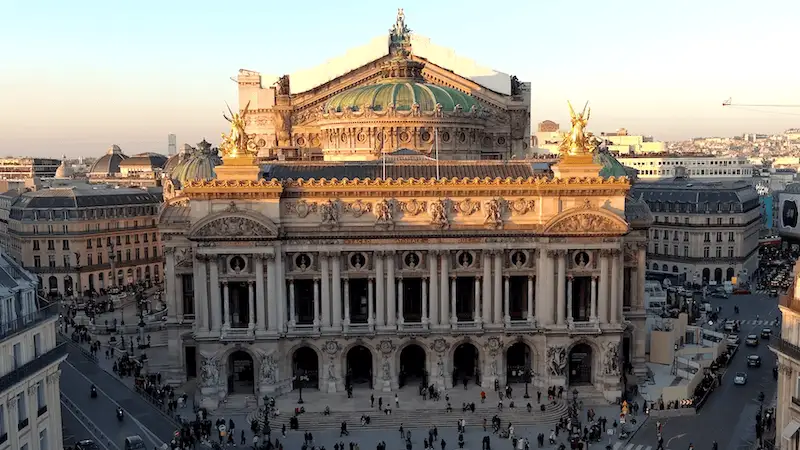
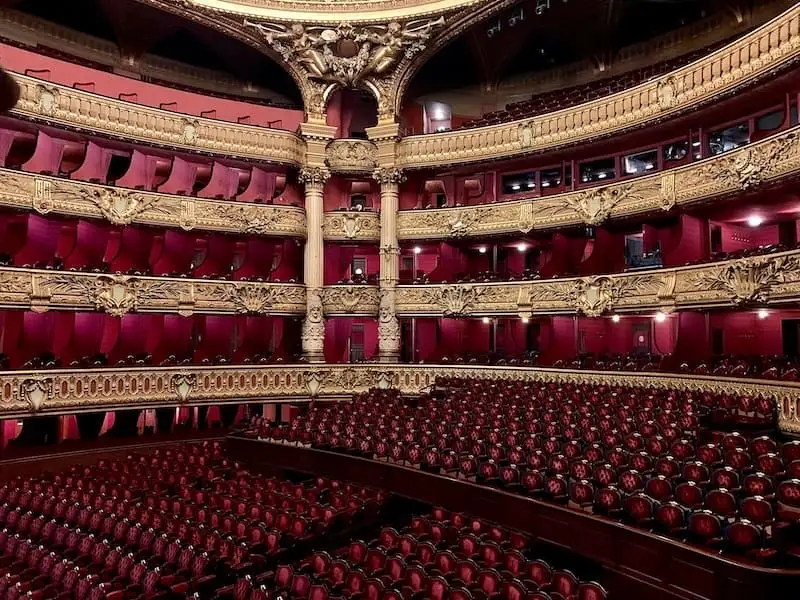
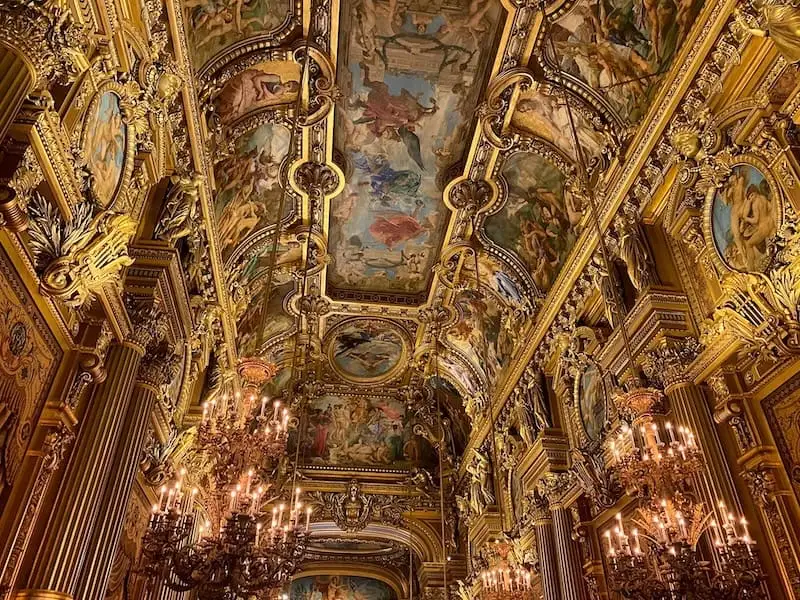
You can explore the opera by attending a theatrical or musical performance. Seats are scarce, and you often need to book several weeks, even several months, in advance. However, be sure to check the schedule of performances, as it could be a truly unique Parisian experience during your stay in Paris.
Even if you don’t have the opportunity to attend a show, visiting the Palais Garnier remains essential among the things to see in Paris. The opera is a true architectural masterpiece, an iconic monument that embodies France’s cultural influence on the international stage.
Visits to the Palais Garnier are only possible between 10 a.m. and 4 p.m. However, be aware that on certain days, access is restricted due to rehearsals or show preparations. To guarantee entry, consider booking your tickets for the palace online at least 3 to 4 days in advance.
In addition to the classic visits, the Palais Garnier offers game-based tours around the theme of Arsène Lupin, the gentleman thief. In this game, you’ll have to uncover the secret of Cagliostro. It’s an original and fun way to discover the opera, which will delight both young and old. Will you dare to take on the challenge of the Palais Garnier?
Midday: Lunch on the Montmartre hill
After following in the footsteps of the Phantom of the Opera, head to Paris’s bohemian district: Montmartre.
Along the way, you’ll find a wide variety of restaurants. If you want to sample French specialties in a traditional bistro setting, book a table at one of the emblematic establishments on the Montmartre hill. It’s the ideal setting to enjoy escargots à la bourguignonne before starting the climb to the Basilica of the Sacré-Cœur.
Here are a few suggestions for a bite to eat in Montmartre:
- Le Consulat (18 Rue Norvins, 75018 Paris): A historic restaurant offering traditional French cuisine in an authentic setting.
- Bouillon Pigalle (22 Boulevard de Clichy, 75018 Paris): A popular and affordable establishment serving French classics in a relaxed atmosphere.
- Le Progrès (7 Rue des Trois Frères, 75018 Paris): A friendly bistro, perfect for a typically Parisian lunch break.
Afternoon: Exploring Montmartre
Devote your afternoon to discovering the picturesque Montmartre neighborhood and its village-like atmosphere. Many guided tours of Montmartre are available. Joining one of them is the best way not to miss anything. Montmartre is full of hidden corners and unusual stories to discover.
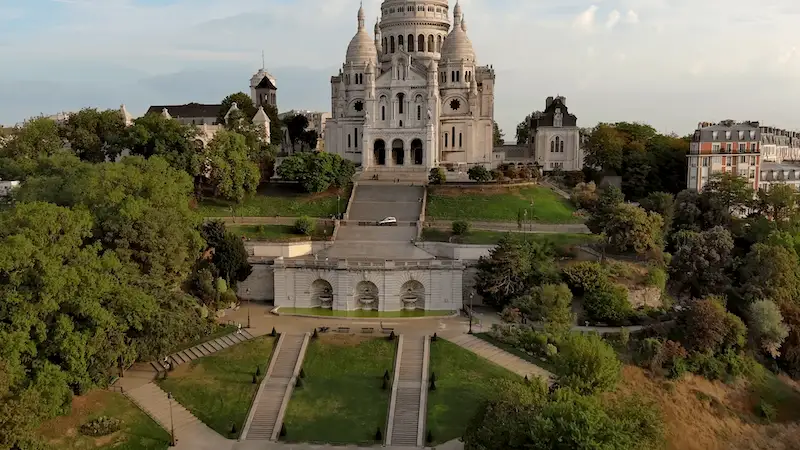
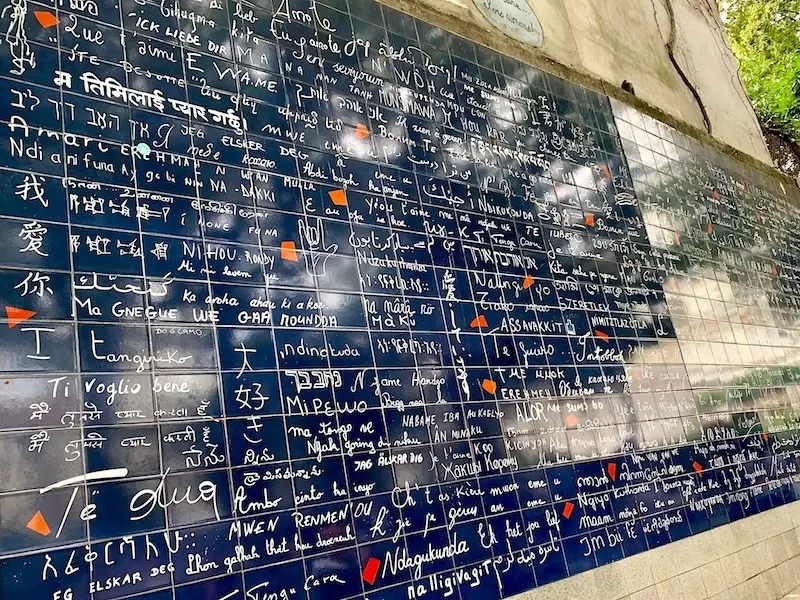
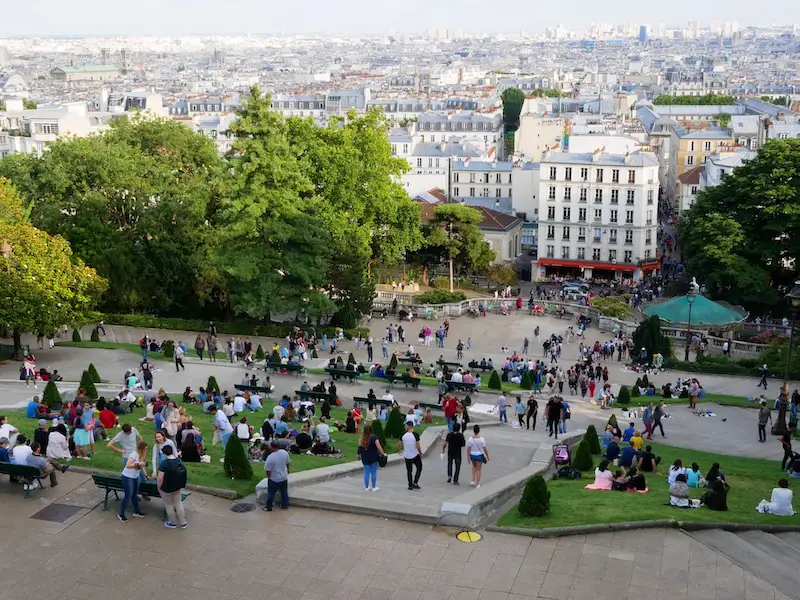
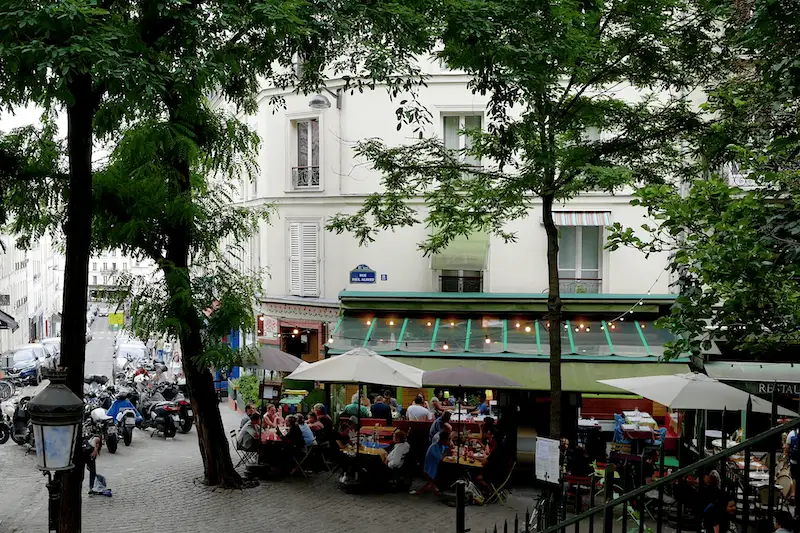
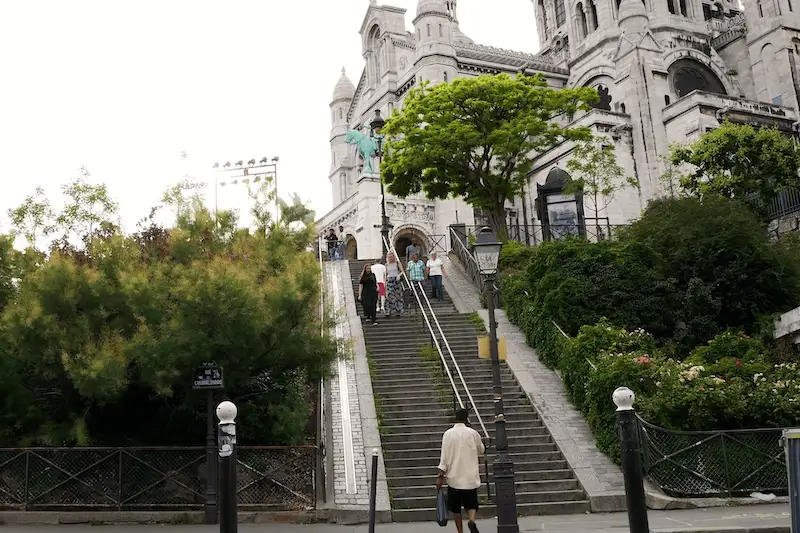
During your exploration of Montmartre, you’ll discover Rue des Abbesses, the liveliest street on the hill, where you can buy the famous chocolate from Maison Alain Ducasse—a simple, iconic souvenir idea. Don’t miss the “I Love You” Wall, which features the famous declaration in over 300 languages, or Place du Tertre, where local artists display their works and offer to sketch your portrait for a few euros.
Finally, you’ll arrive at the foot of the hill to begin your climb to the lovely Basilica of the Sacré-Cœur, dressed all in white. The basilica overlooks Paris from nearly 130 meters in altitude and offers a spectacular panoramic view of the capital. Admission is free, and the basilica is open every day, without exception.
If you’d prefer to avoid climbing the roughly 200 steps, you can take the (paid) funicular, which will bring you to the top from Square Louise-Michel in under two minutes.
Evening show in the Pigalle district
What better way to conclude this already busy day than to venture into the capital’s most notorious neighborhood to watch one of the most legendary shows in Paris at France’s most iconic cabaret: the Moulin Rouge.
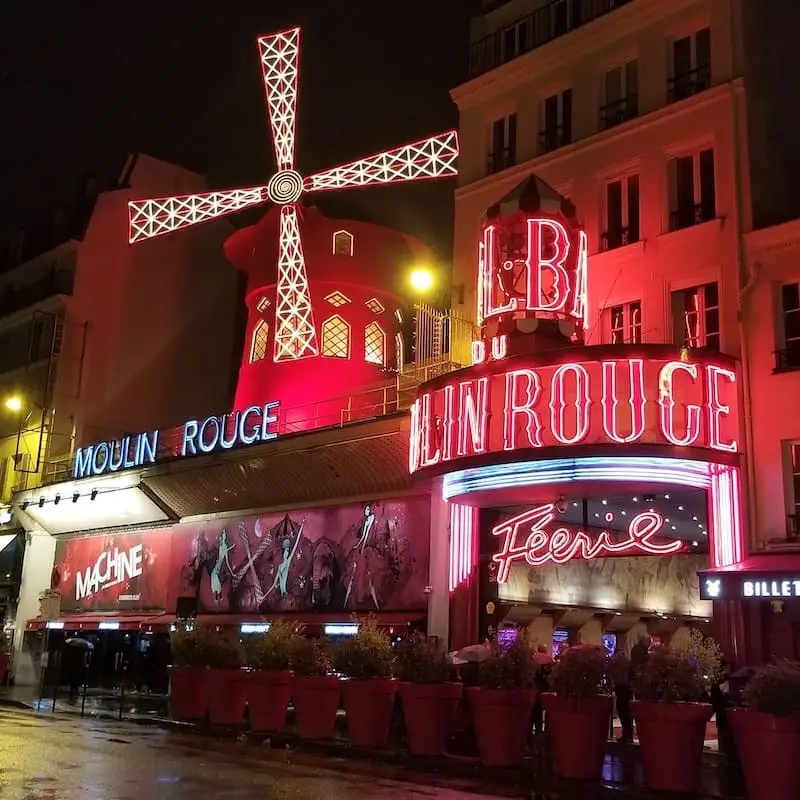
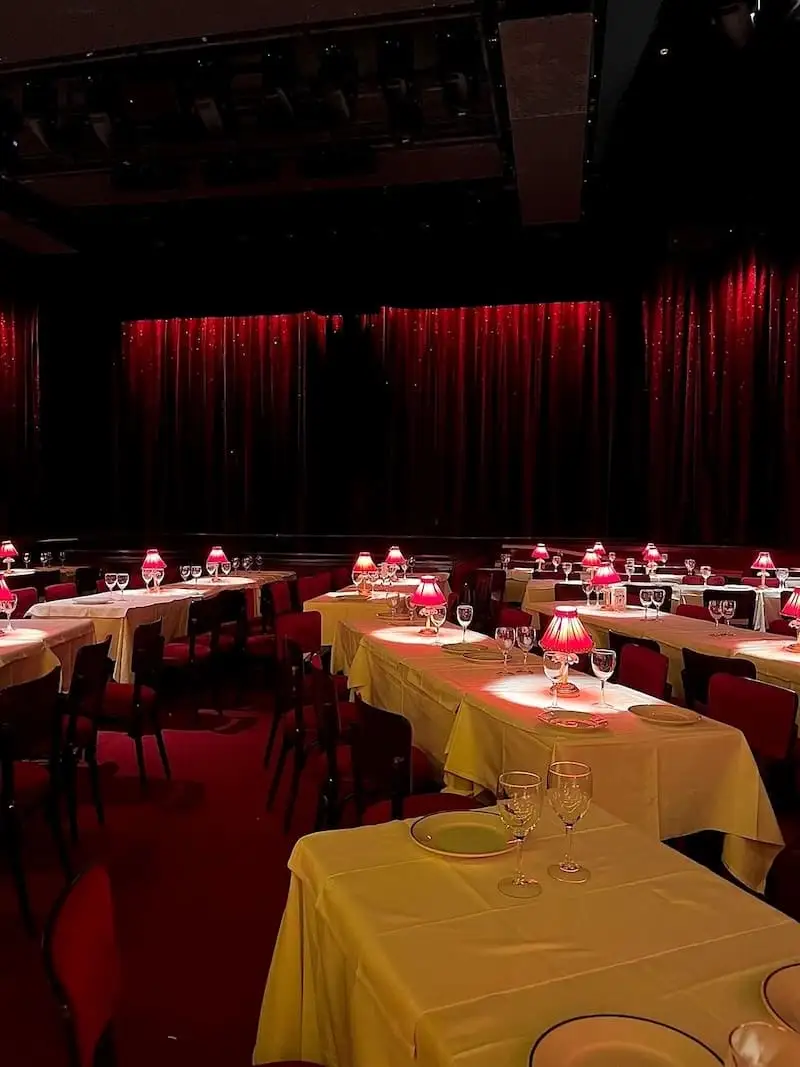
This emblematic place, easily recognizable by its scarlet windmill-like frontage, is world-famous for its dazzling shows (not open to minors) and its legendary French Cancan.
Don’t be put off by the show’s revealing nature, because the Moulin Rouge performance is so much more: it’s one of the most accomplished choreographed shows on the Parisian scene. The dancers, acrobats, and musicians are simply impressive. The downside to the venue’s international success is that the Moulin Rouge shows are expensive and in high demand.
To have the chance to attend a show or a dinner-show, it is essential to book your ticket for the Moulin Rouge several days in advance. It’s well worth it: it’s one of the most iconic shows in Paris and in France.
Day 4: The Latin Quarter, Luxembourg Garden, and Musée d’Orsay
For this fourth day in Paris, immerse yourself in the intellectual, artistic, and historical atmosphere of the capital.
Morning: Exploring the Latin Quarter and the Panthéon
Start your day by discovering the emblematic Latin Quarter (5th and 6th arrondissements), known for its student vibe, ancient bookstores, and charming narrow streets. The area still resonates as the historic heart of Paris’s intellectual life. It is home to two iconic buildings: the Sorbonne University and the Panthéon.
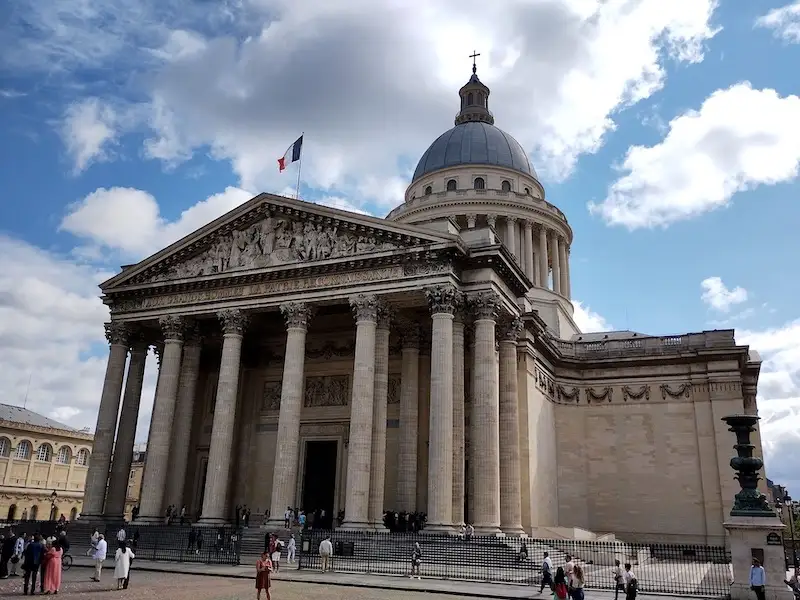
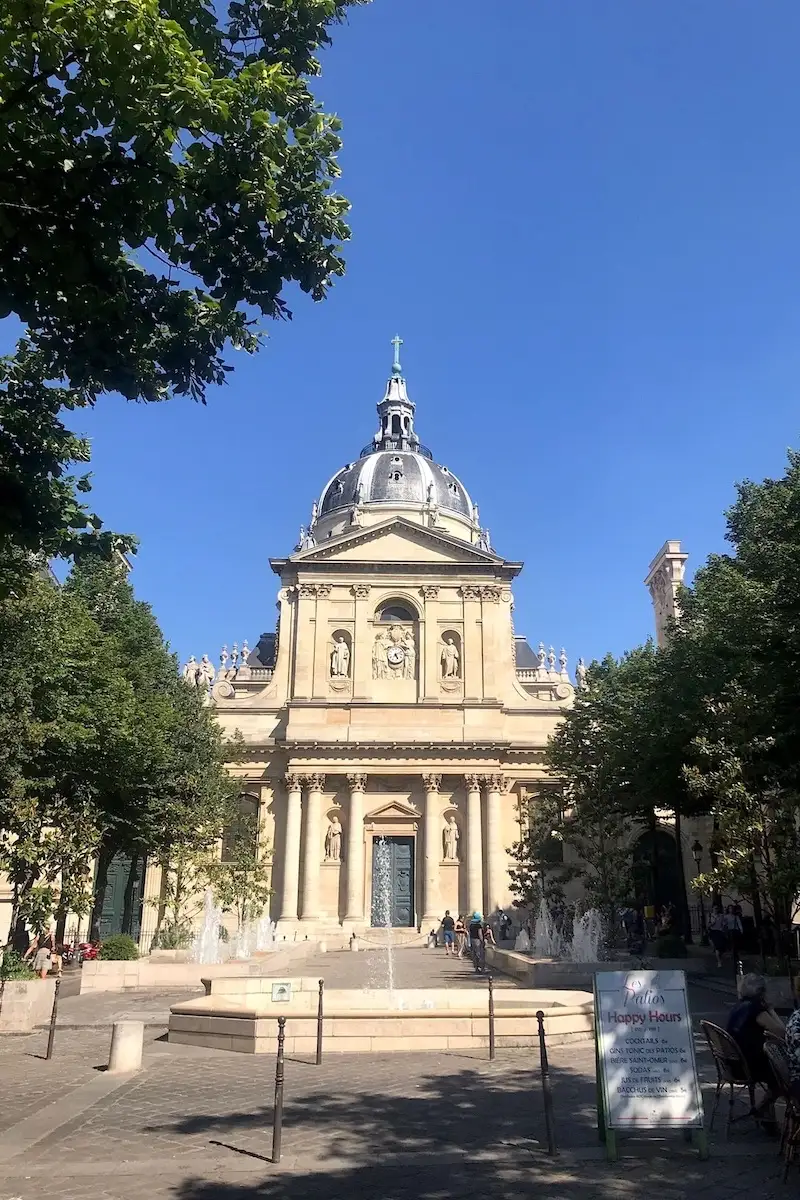
There are several ways to discover the heart of Paris, notably by taking a guided tour of the Latin Quarter or, if you want something a bit more original, we recommend discovering the center by joining a guided bike tour. Besides being fun and entertaining, biking around central Paris allows you to quickly explore several neighborhoods (the 5th and 6th arrondissements) of the Latin Quarter, as well as neighboring ones like the famous Marais (3rd and 4th arrondissements), which is located nearby.
You can also set off to explore the heart of Paris on your own. If you wish to discover the Latin Quarter by yourself, start from Place Saint-Michel and its famous fountain, then head toward the Sorbonne. Don’t hesitate to deliberately get lost in the Latin Quarter’s streets to uncover its magic. From the Sorbonne, continue on to the Panthéon.
The Panthéon is a must-see, both for its architecture and its cultural significance on a national level. Within this majestic neoclassical structure rest great French figures such as Voltaire, Victor Hugo, Marie Curie, and Alexandre Dumas.
You will also find the Statue of the National Convention and the famous Foucault Pendulum in the nave of the Panthéon. If you choose the panorama option, you can climb the spiral staircase leading into the Panthéon’s dome to enjoy a magnificent view of Paris.
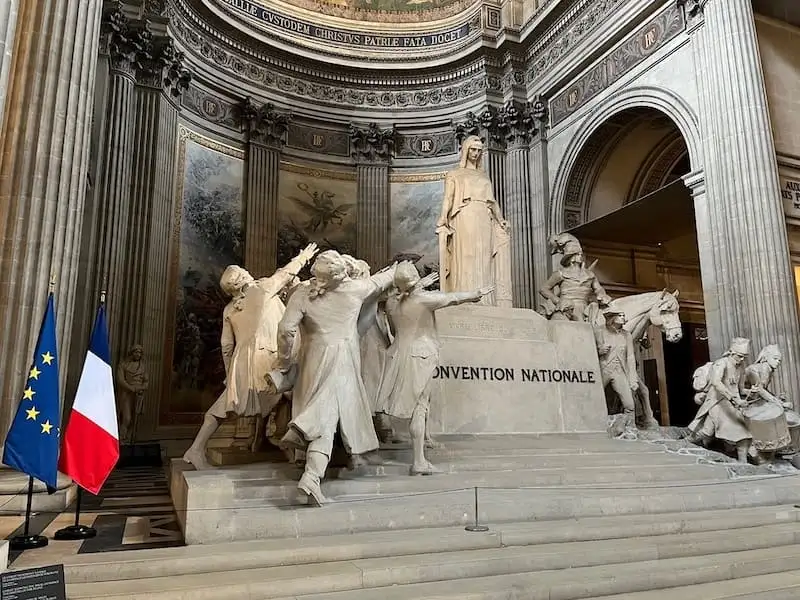
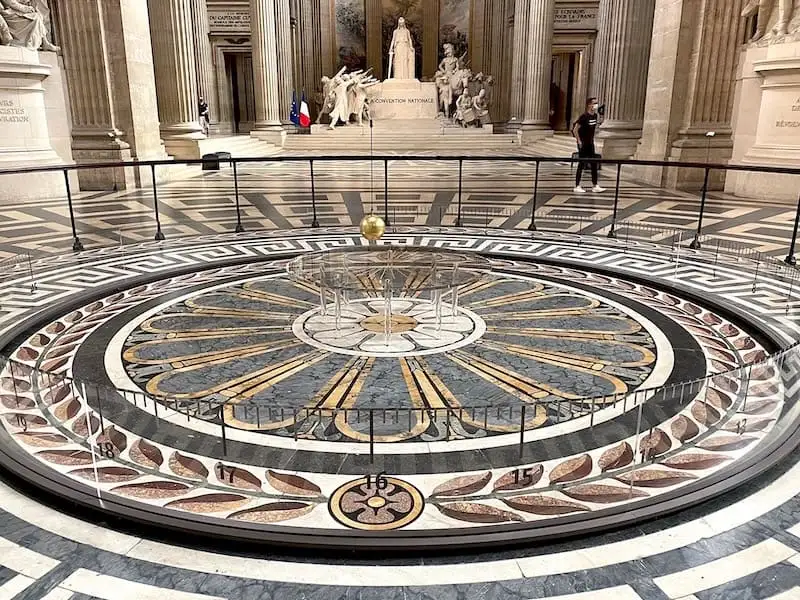
Once again, be sure to reserve your tickets for the Panthéon in advance to avoid waiting in line. Admission is free for EU citizens under 26; otherwise, it’s €13 for adults (€16.50 with the panorama option).
After learning about the illustrious women and men who have marked the French nation, head to the Luxembourg Garden, a small oasis of greenery in the heart of Paris. It’s a peaceful natural break before continuing your journey toward Odéon.
Lunch: Relaxation in the Luxembourg Garden
The Luxembourg Garden is ideal for a picnic if the sun is shining. You can settle near the central pond to enjoy a tranquil atmosphere.
For a more traditional sit-down lunch, there are many popular spots between Luxembourg and Odéon. Here are some must-try addresses worth a visit:
- Treize au Jardin (5 Rue de Médicis, 75006 Paris), a cozy atmosphere, homemade Franco-American cuisine, just steps from the garden.
- Le Procope (13 Rue de l'Ancienne Comédie, 75006 Paris), the oldest café in Paris, steeped in history and once frequented by Voltaire, Rousseau, and Diderot.
- Le Paradis des Amis, 14 Rue de Buci, 75006 Paris, a warm little bistro serving generous French cuisine in a cheerful setting.
- Le Jardin Saint-Germain, 6 Rue de l'Abbaye, 75006 Paris, featuring a lush and elegant setting, refined French cuisine, perfect for a quieter break.
Afternoon: Musée d’Orsay
After lunch, depart from Pont Saint-Michel and start walking along the Seine toward the Musée d’Orsay. It’s a lovely riverside stroll that will allow you to see some of the capital’s most iconic bridges, such as Pont Neuf, the oldest bridge in Paris, and Pont des Arts.
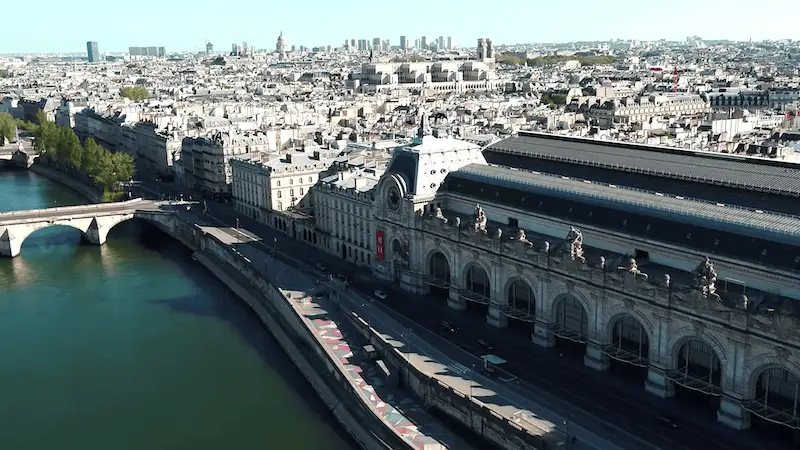
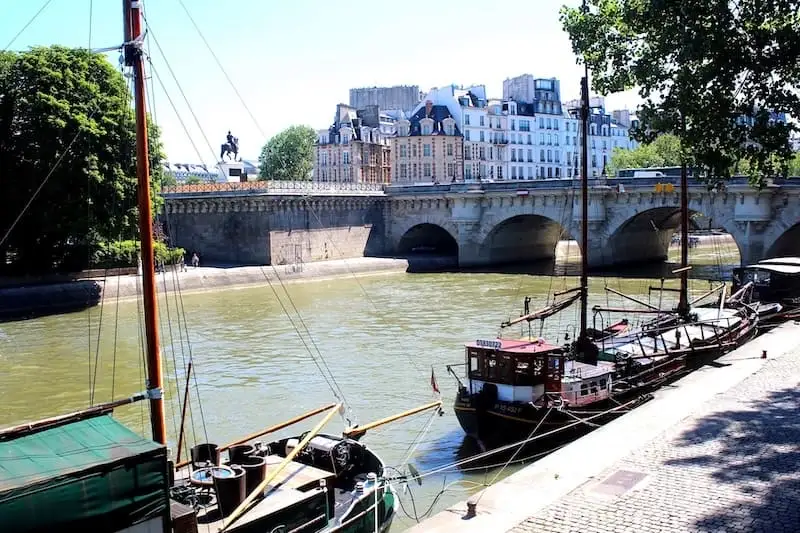
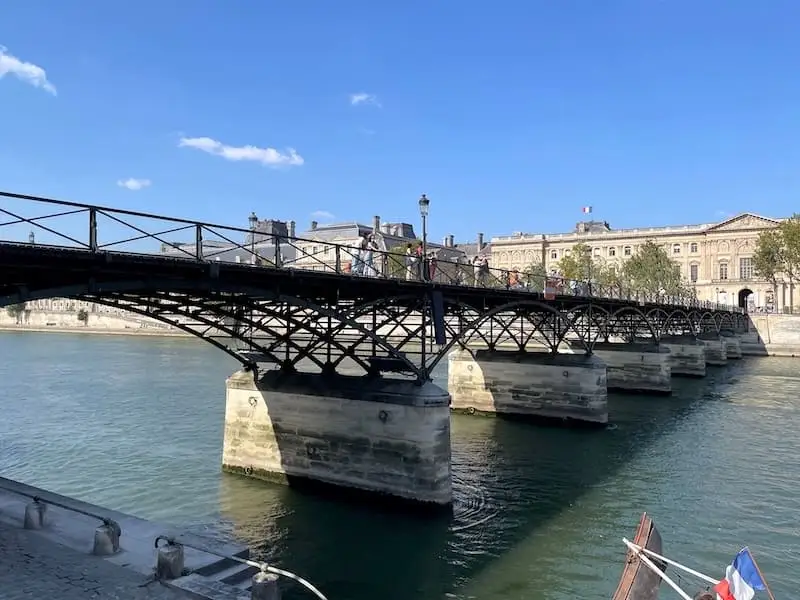
When the riverside path forces you to head back up, you’ll find yourself near the Pont Royal, just a few meters from the Musée d’Orsay.
The Musée d’Orsay is exceptional both for the collections it houses and for its distinctive architecture. The museum is housed in a former train station built for the 1900 World’s Fair, later converted and renovated to become the cultural establishment it is today. Though much smaller than the Louvre, Orsay remains an outstanding museum, particularly for its impressive collection of Impressionist and Post-Impressionist paintings.
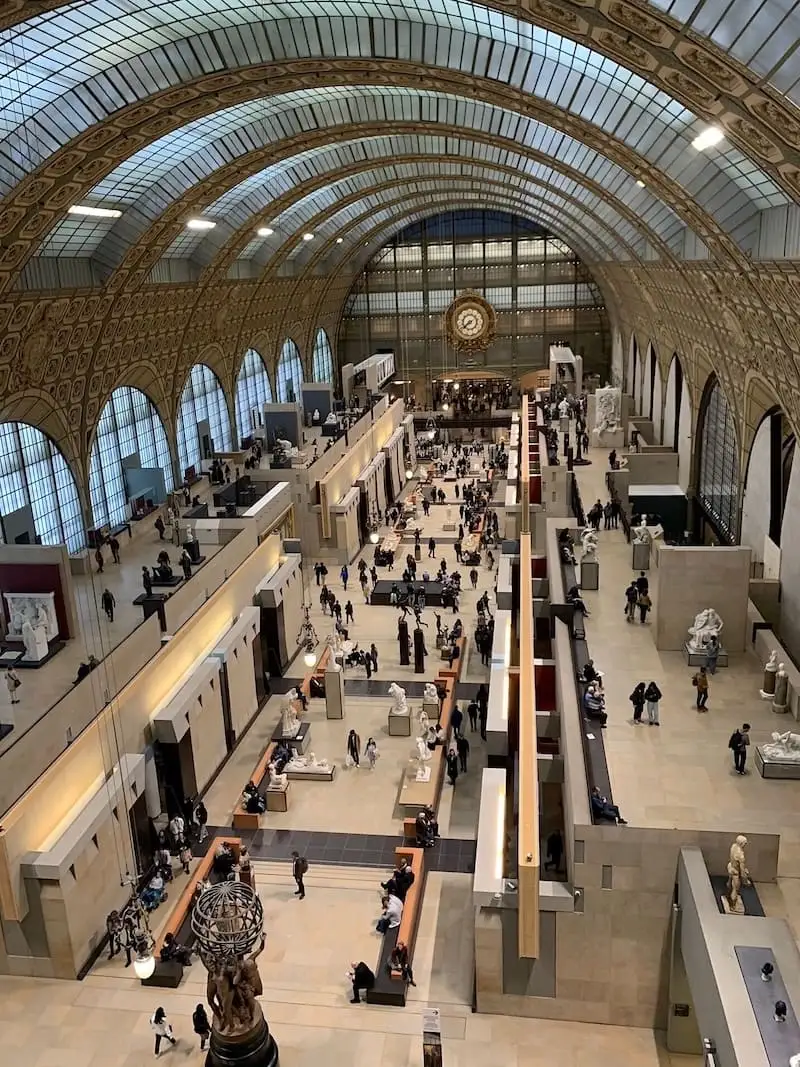
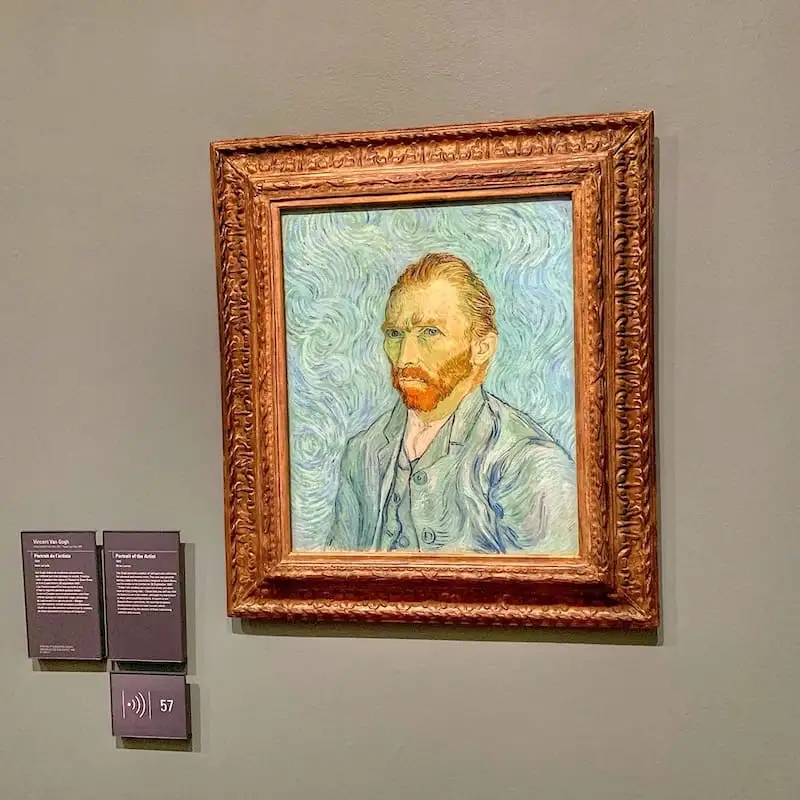
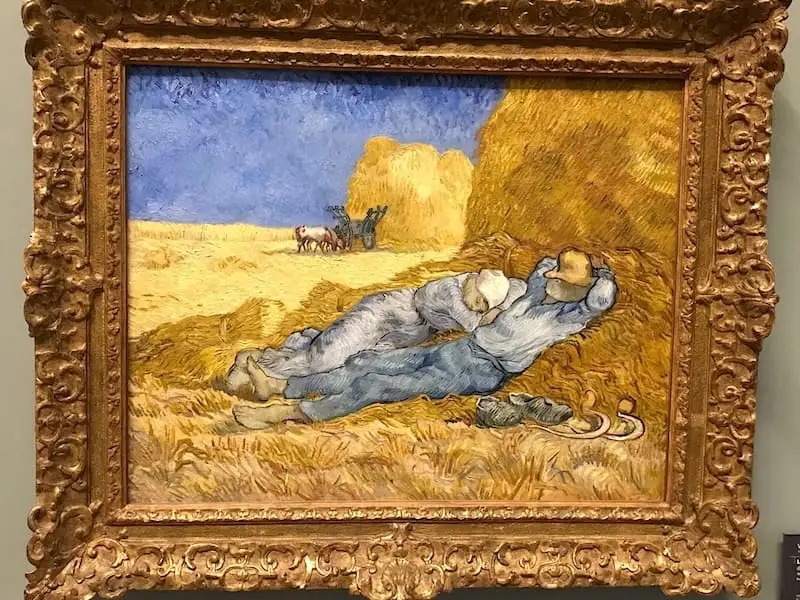
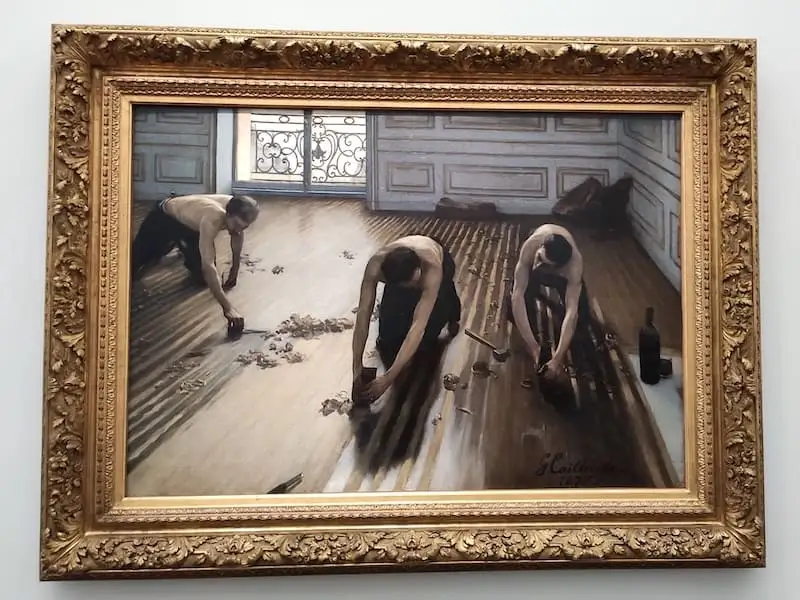
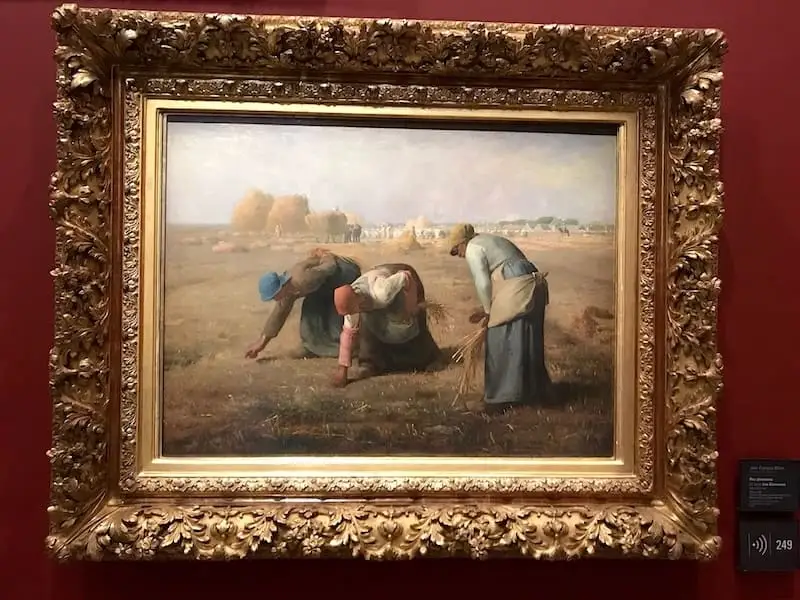
Here, you’ll have the chance to admire masterpieces by Monet, Degas, Renoir, and of course numerous works by the troubled artist Van Gogh. Orsay also regularly hosts temporary exhibitions.
The museum is open from Tuesday to Sunday (closed on Mondays). The adult rate is €13, and admission is free for EU citizens under 26. Remember to book your ticket for the Musée d’Orsay online to secure your spot. Plan on spending 2 to 3 hours to fully enjoy the permanent and temporary exhibitions.
Lively evening in the heart of Paris
To end the day on a high note, head out for an evening in true Parisian style.
If you’re drawn to the guinguette spirit, go for a drink or dinner at Rosa Bonheur sur Seine (Port des Invalides, 75007 Paris), a barge offering an unobstructed view of the Seine and the Pont Alexandre III. In the pure Parisian guinguette style, the atmosphere is relaxed, festive, and quintessentially Parisian.
If you prefer a more intimate ambiance, choose instead the famous Caveau de la Huchette (5 Rue de la Huchette, 75005 Paris), a legendary jazz club tucked away in a vaulted cellar of the Latin Quarter. A cult venue since the 1940s, it offers live concerts and a dance floor where you can still watch jazz enthusiasts swing the night away. It’s a real dive into yesteryear’s Paris, with a touch of timeless magic.
Day 5: Arc de Triomphe, Champs-Élysées, and Dinner Cruise on the Seine
To end your Parisian adventure on a high note, what could be better than strolling along the Champs-Élysées and then gliding down the Seine?
Morning: Arc de Triomphe and the Champs-Élysées
Start your final day by visiting the Arc de Triomphe. This iconic monument commissioned by Napoleon is located on Place Charles-de-Gaulle, commonly referred to as Place de l’Étoile. At the base of the arch is the Tomb of the Unknown Soldier and its eternal flame, honoring the French soldiers who died for their country during World War I.
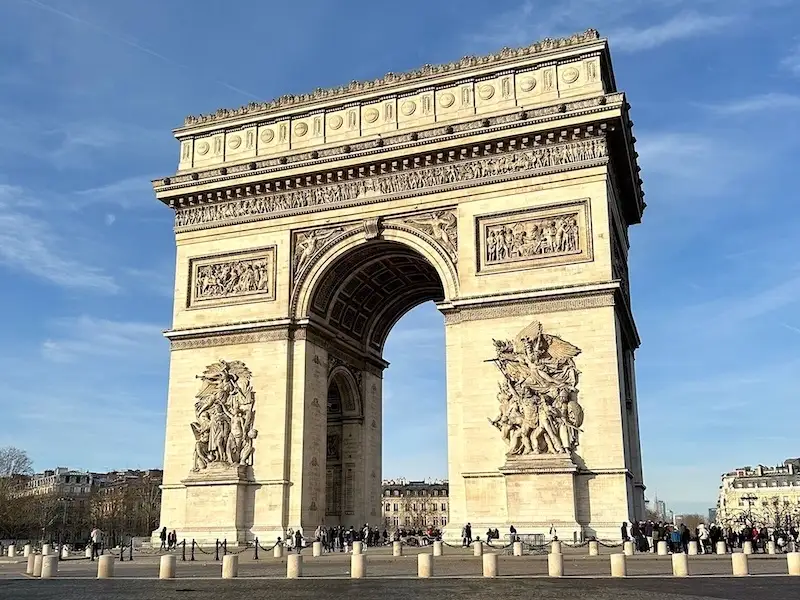
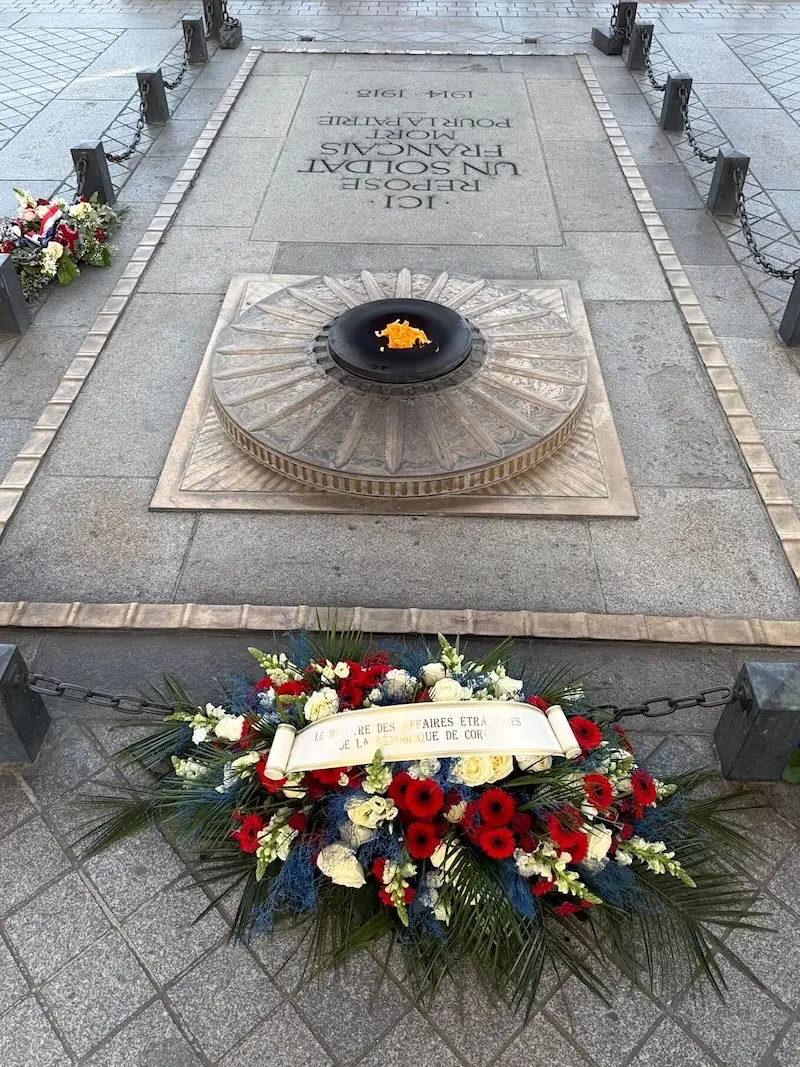
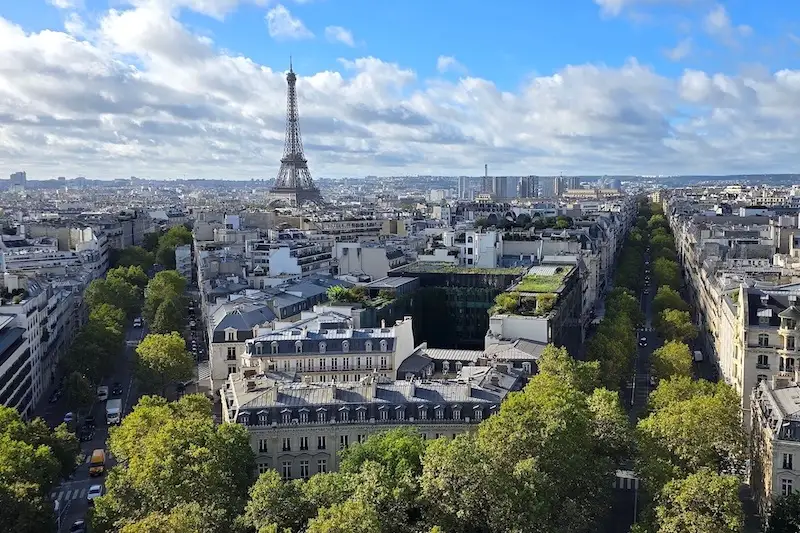
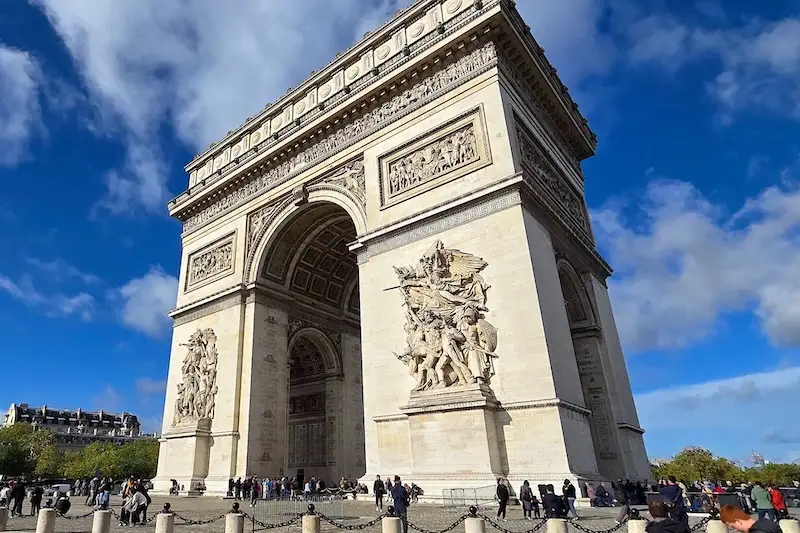
From the top of the imposing 50-meter arch, once you’ve climbed the 284 steps, you can enjoy an exceptional panoramic view of Paris, the Champs-Élysées, and the Eiffel Tower.
The entrance ticket for the arch and its rooftop is €16 for adults, and still free for EU citizens under 26. As with all popular Parisian attractions, it is highly recommended to purchase your Arc de Triomphe ticket online a few days in advance.
Once you’ve finished visiting the arch — plan about one hour for the complete tour — it’s time to head down the world’s most beautiful avenue: the Champs-Élysées. This avenue is world-renowned for its luxury boutiques, international brands, and lively atmosphere.
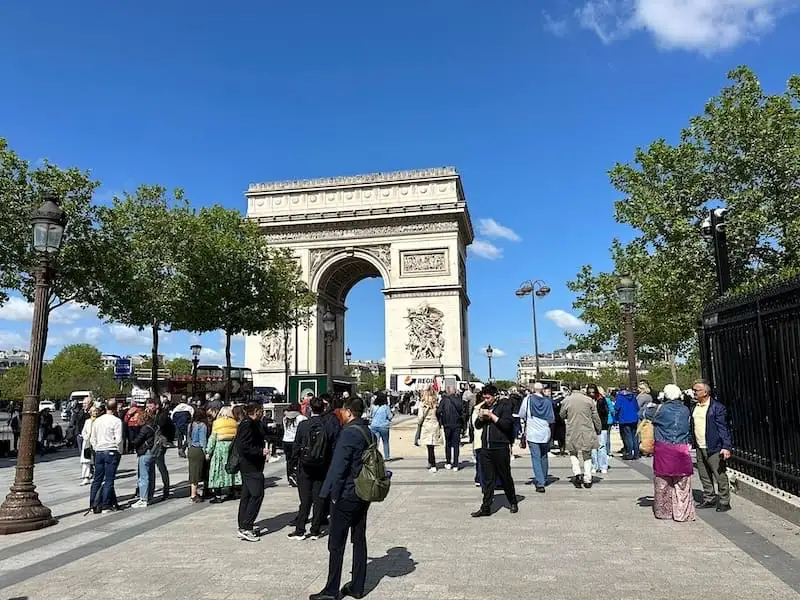
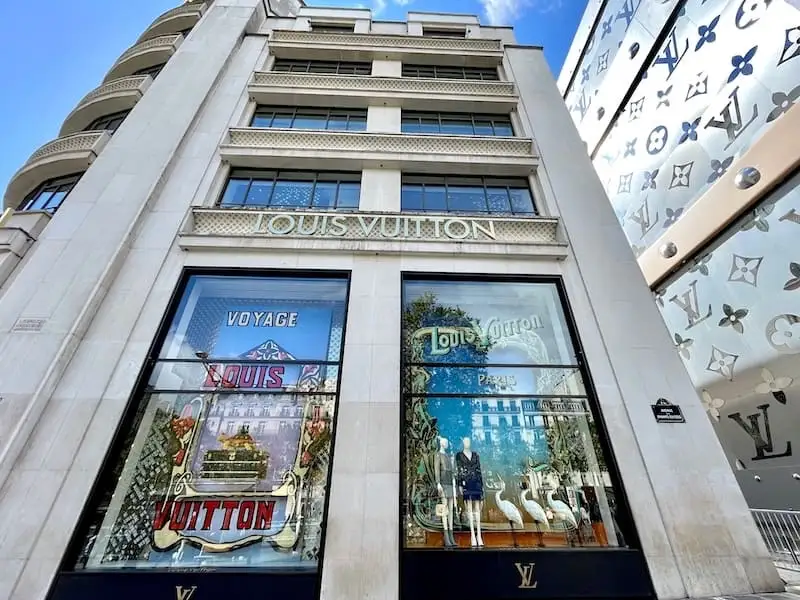
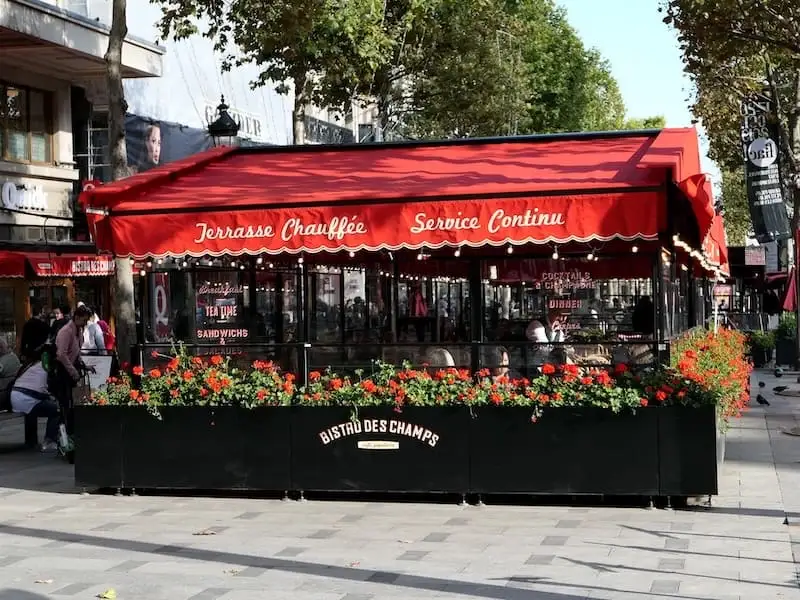
Since 2016, the Champs-Élysées become entirely pedestrian once a month, usually on the first Sunday. If your stay falls at the beginning of the month, try planning your visit to the Champs on that Sunday.
The Champs-Élysées, stretching for about 1.9 km, host dozens of boutiques and major brand stores. In a sense, it’s the temple of both luxury and mainstream shopping in all of Paris. Louis Vuitton, Chanel, Cartier, Dior, as well as Zara, Lacoste, Nike, Adidas, the Paris Saint-Germain store, Sephora, Guerlain, and Yves Rocher all have a presence here. Many of these stores are flagships featuring unique designs and exclusive products.
There’s something for everyone and every budget; feel free to browse from one store to another.
Midday: Lunch on the Champs-Élysées
When it comes to dining on the Champs, there’s no shortage of options, from simple fast-food joints to high-end restaurants. Among all these choices, here are three emblematic venues on the Champs-Élysées—but be prepared for a (very) steep bill.
- L’Alsace (39 avenue des Champs-Élysées, 75008 Paris): A traditional brasserie where you can savor classic French cuisine.
- Fouquet’s Paris (99 avenue des Champs-Élysées, 75008 Paris): A legendary, chic establishment serving refined dishes.
- Le Deauville (75 avenue des Champs-Élysées, 75008 Paris): A friendly café perfect for a simple lunch on the terrace.
Afternoon: Shopping and the Tuileries Garden
After having lunch on the Champs, you have several options. Of course, you could continue shopping, since the abundance of stores could very well occupy your entire day.
Once you’re done exploring the Champs, your walk will lead you to Place de la Concorde, famed for its genuine Egyptian obelisk that’s over 3,000 years old, making it the oldest monument in Paris.
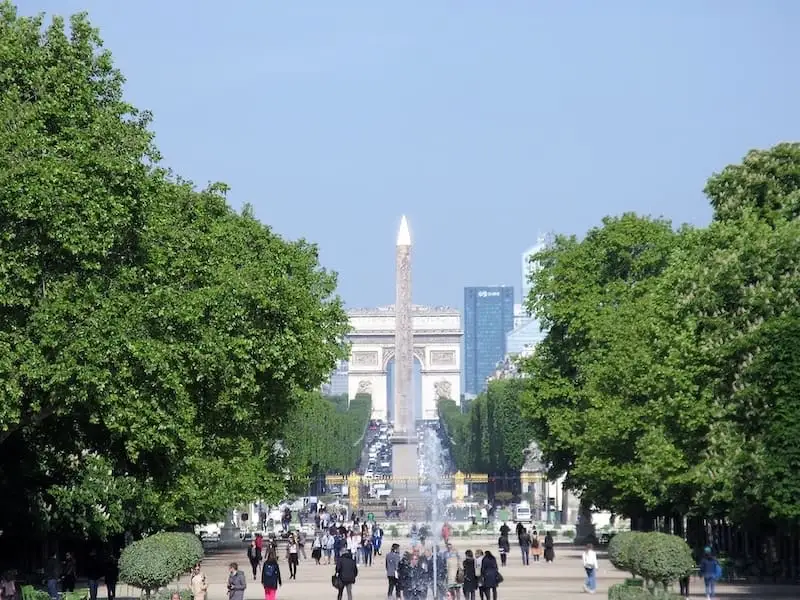
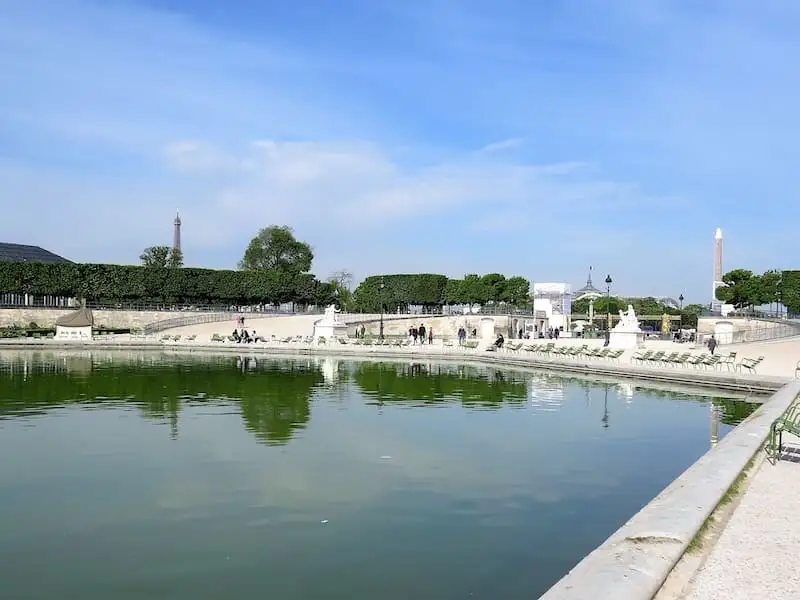
Behind Concorde lies the magnificent Tuileries Garden, where you can enjoy a relaxing break and also take in a bird’s-eye view by hopping into one of the Ferris wheel’s cabins for a breathtaking panorama.
Evening: Dinner Cruise on the Seine
To finish your stay in Paris in style, head to the Paris quays for the must-do activity for all travelers in the capital: the unforgettable dinner cruise on the Seine aboard a péniche or a bateau-mouche.
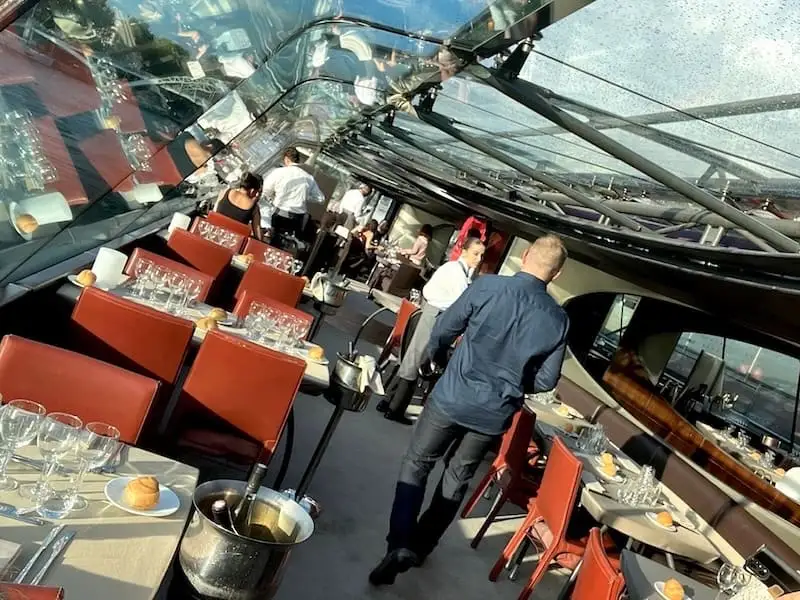
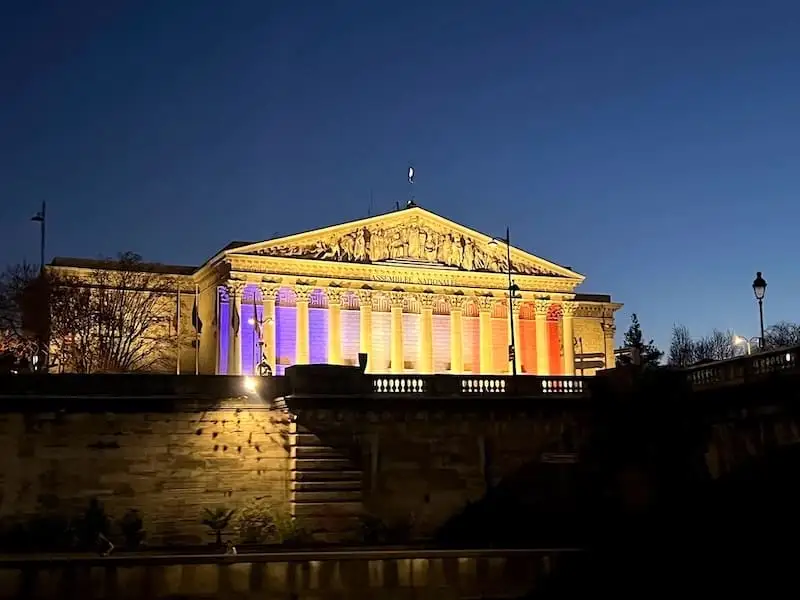
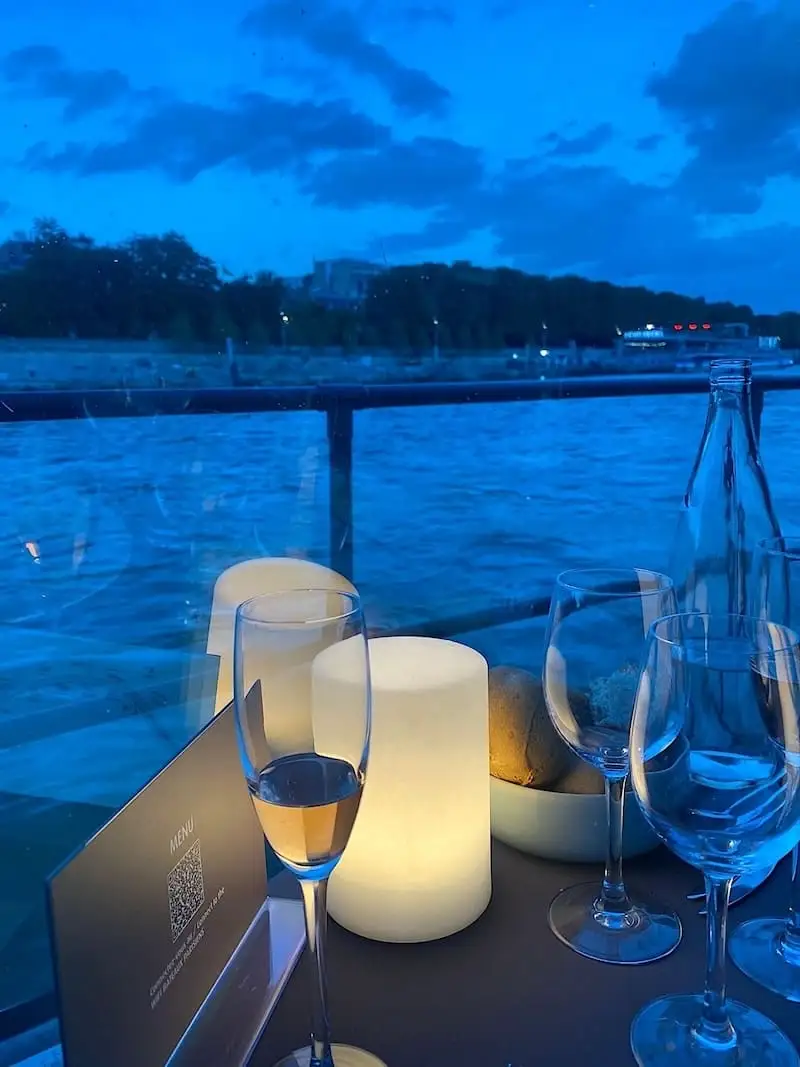
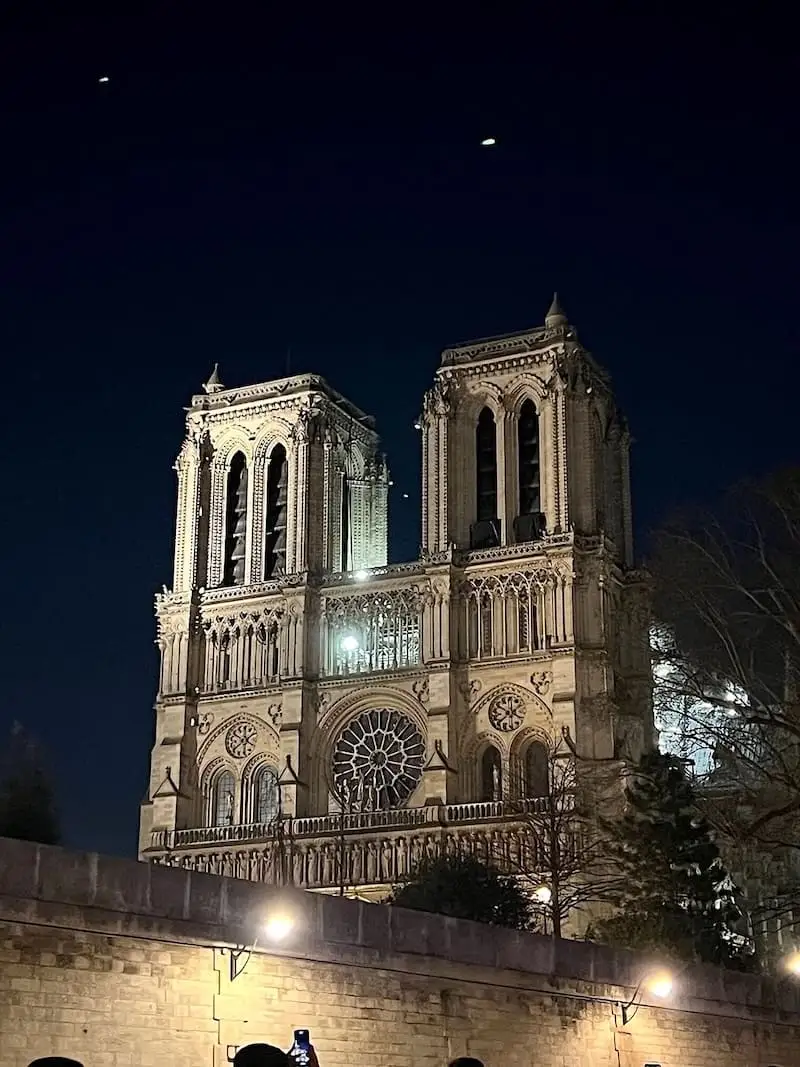
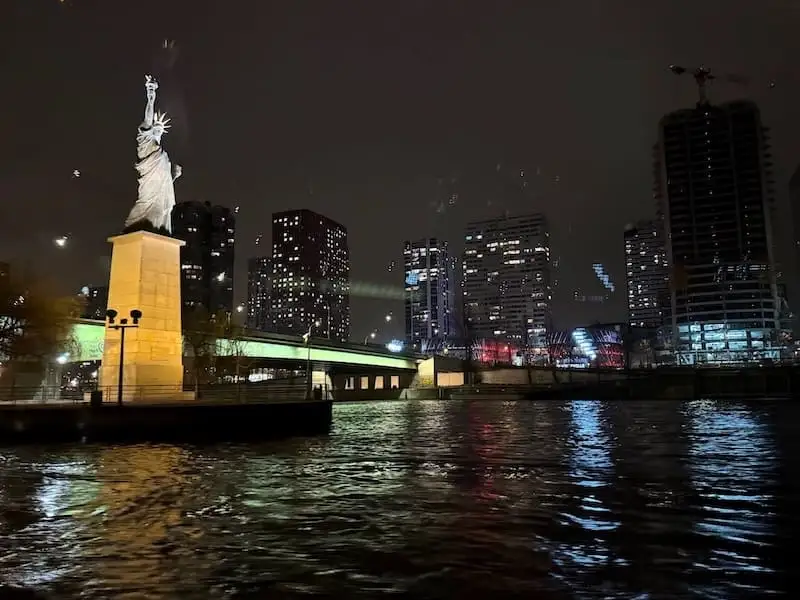
You’ll enjoy a meal while discovering Paris from a different perspective, drifting along the water. You can take a Seine cruise at any time of day, but the best way to experience the romantic side of Paris is to choose a nighttime cruise. The capital, all lit up, takes on a completely different appearance that will truly dazzle you.
To avoid disappointment, you must book your seats well in advance. We recommend the following companies to ensure a successful dinner cruise:
- Les Vedettes de Paris: for a river cruise in the form of an aperitif
- La Marina de Paris: for a quality dinner cruise that remains affordable
- Les Bateaux Mouches: the emblematic company for a prestige dinner cruise on the Seine
- Les Bateaux Parisiens: for an elegant cruise with gourmet dining service